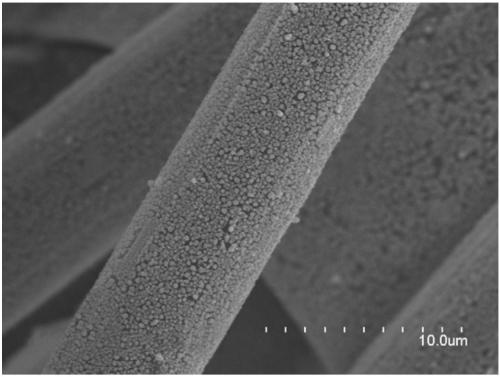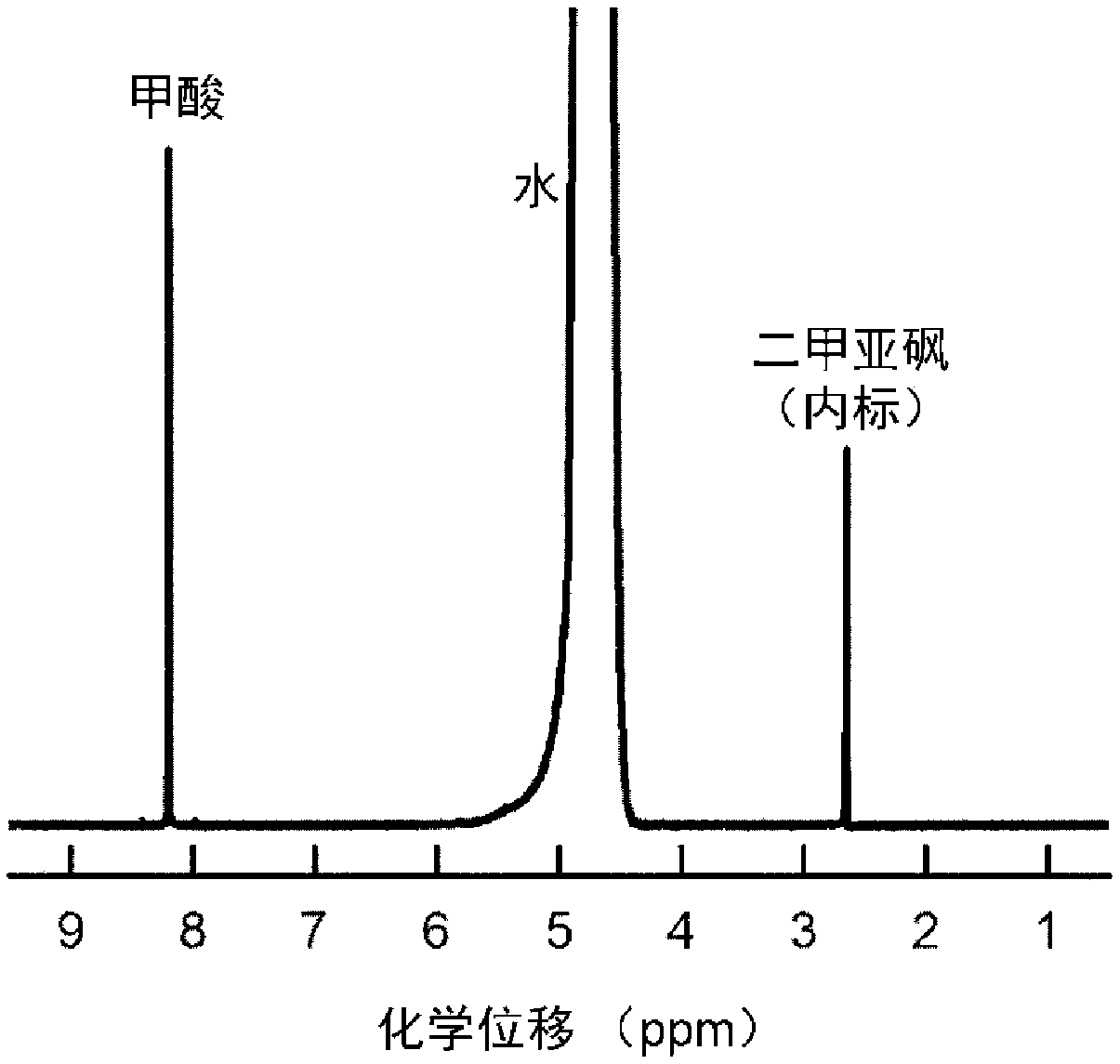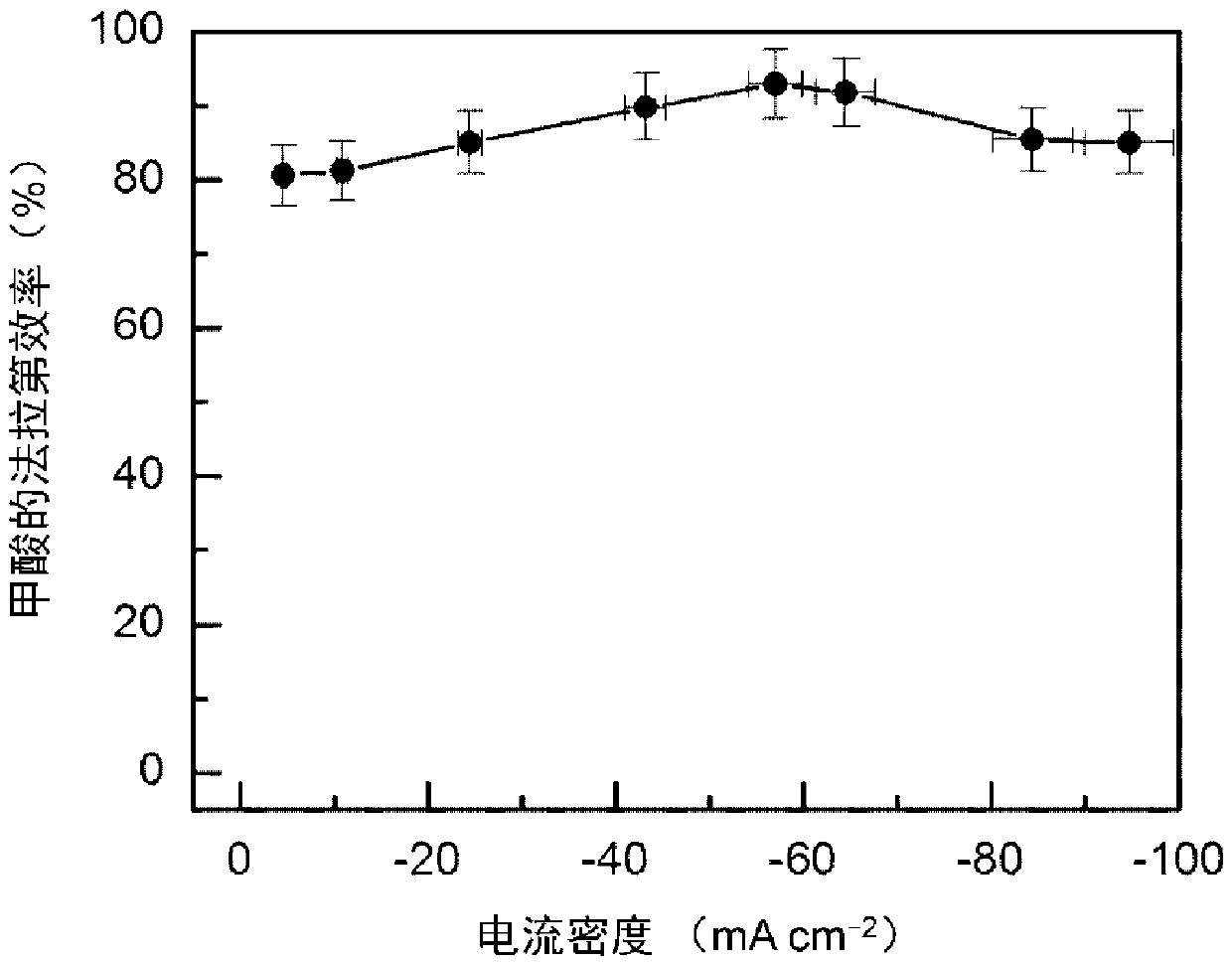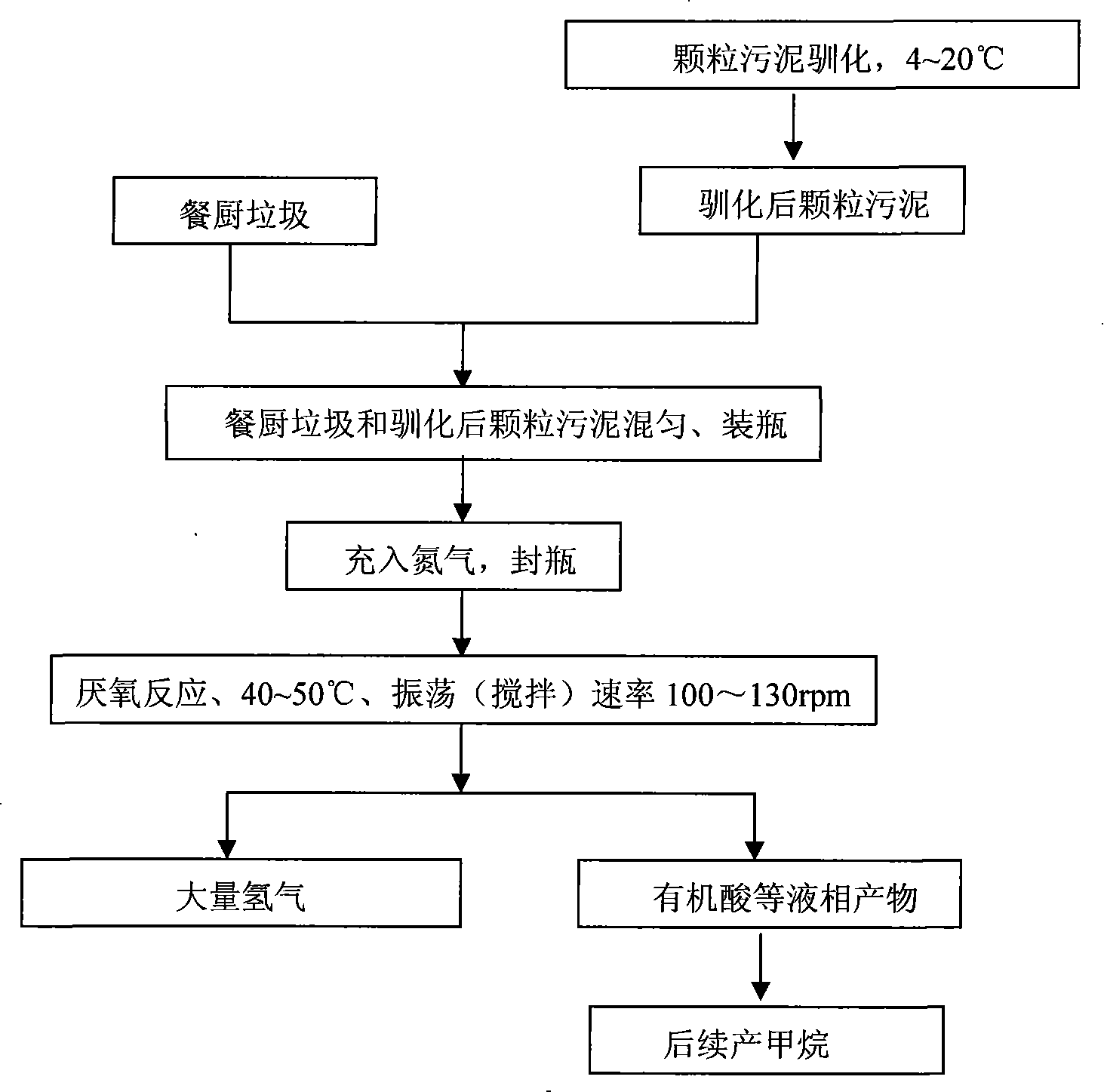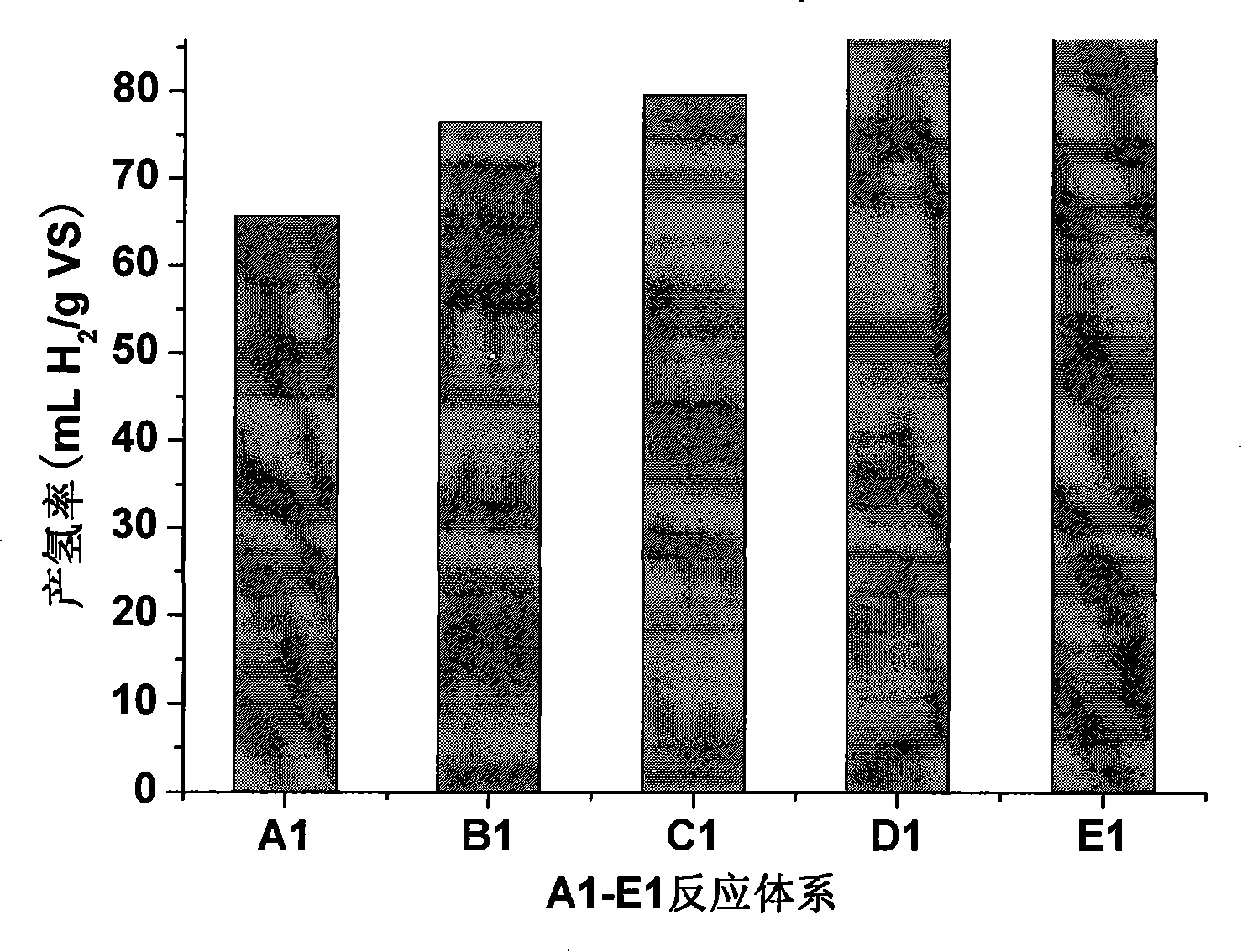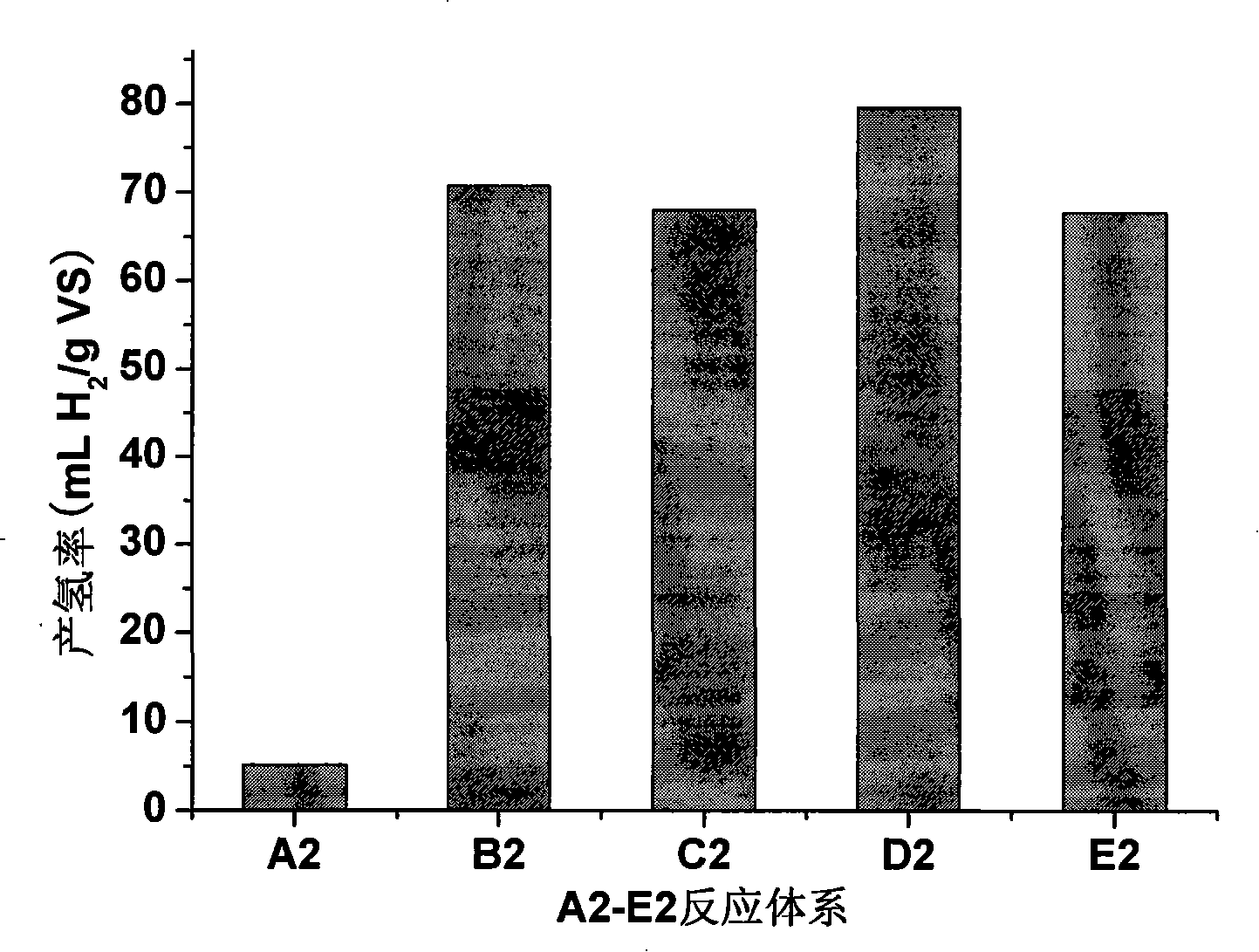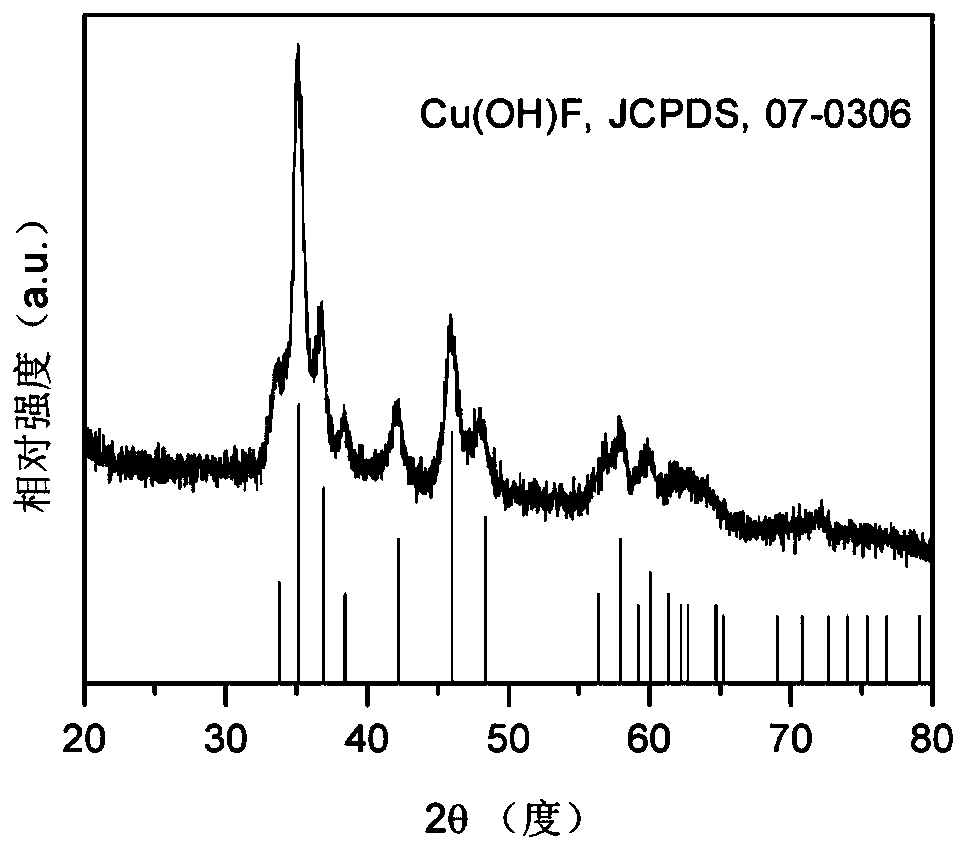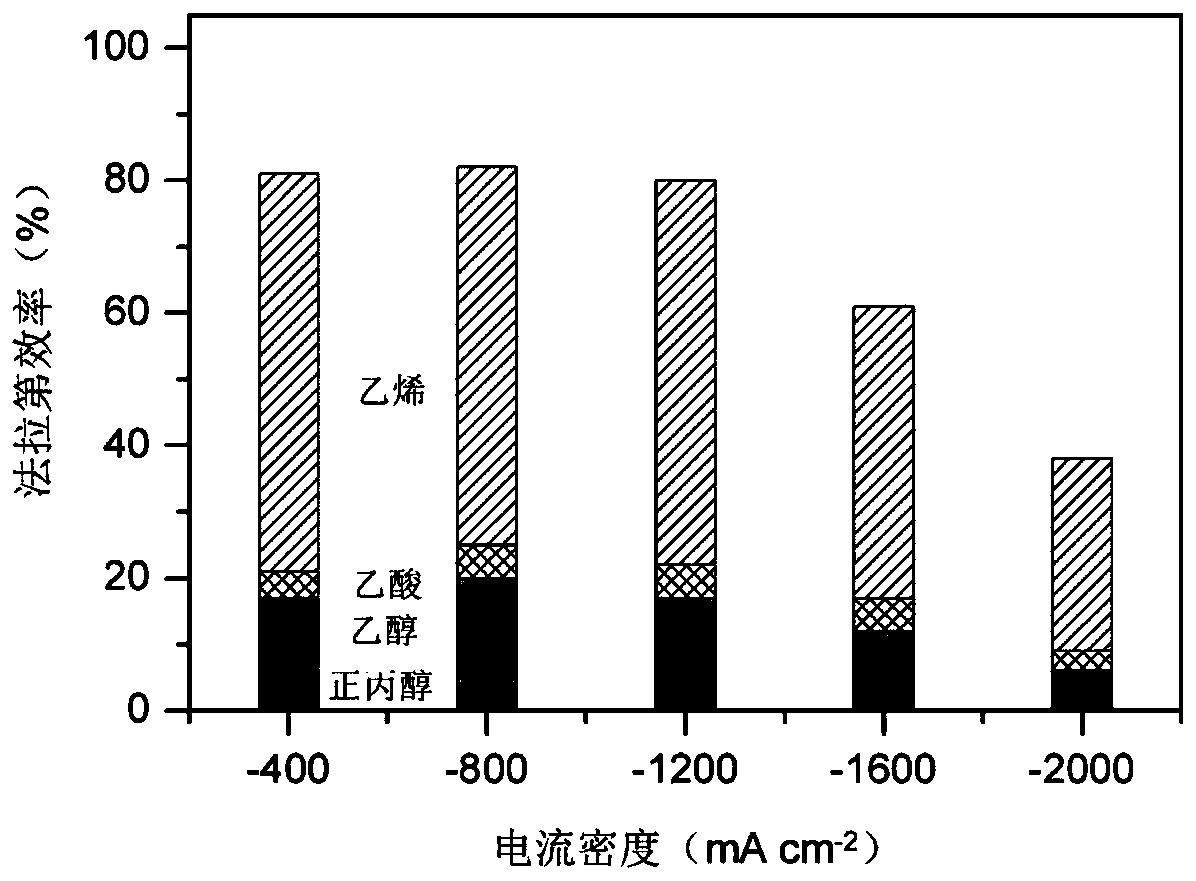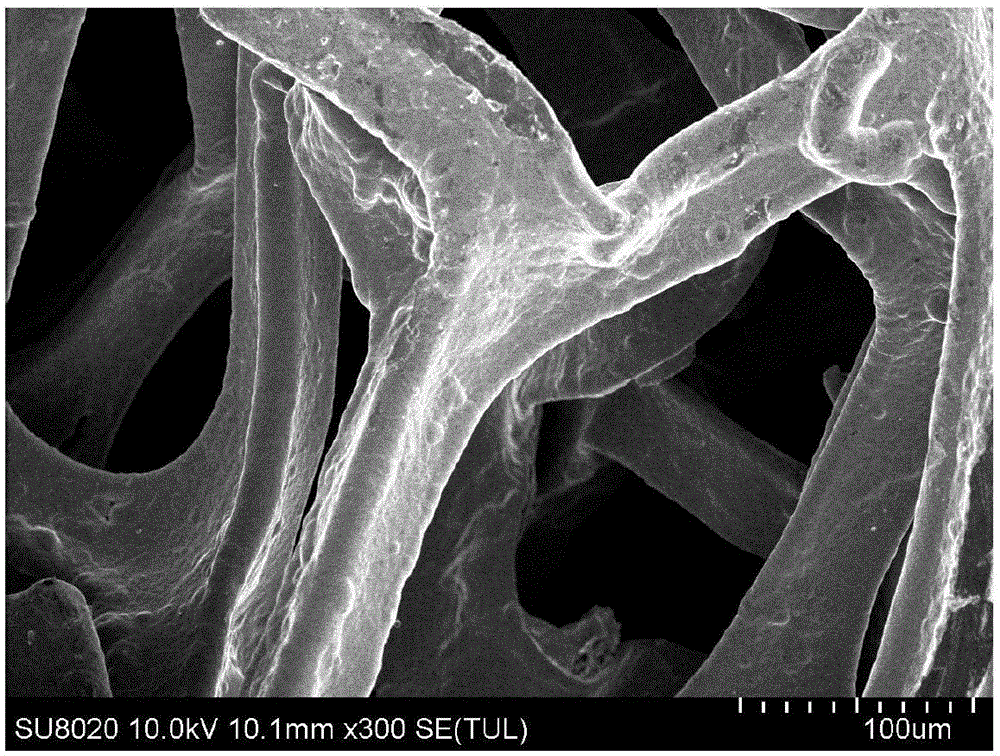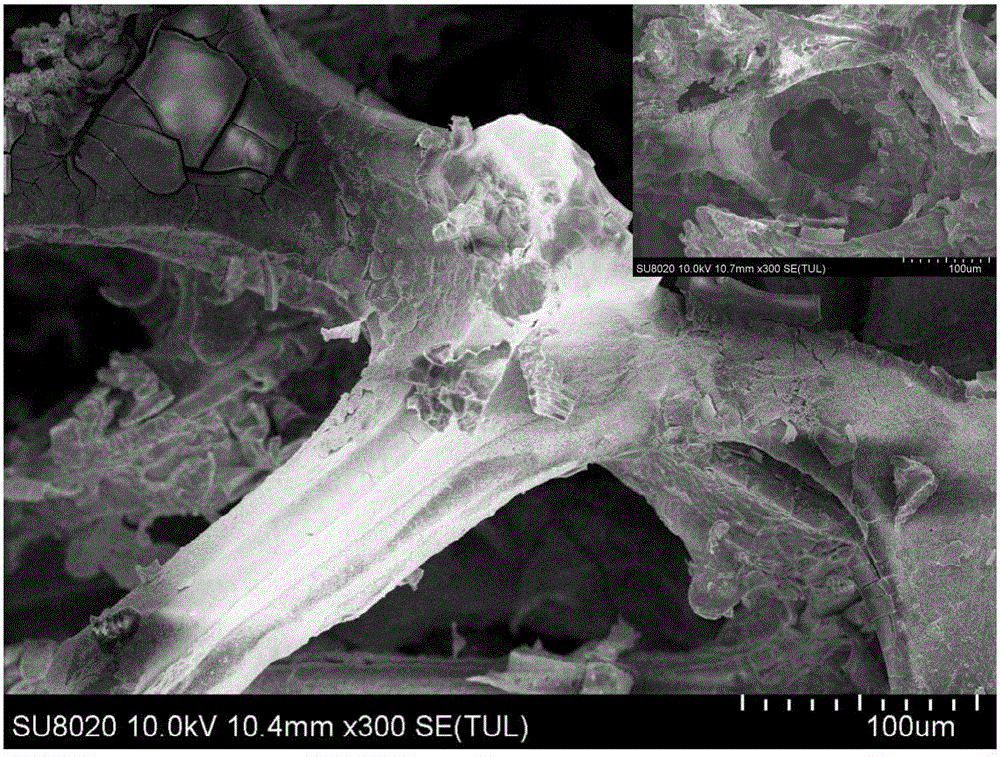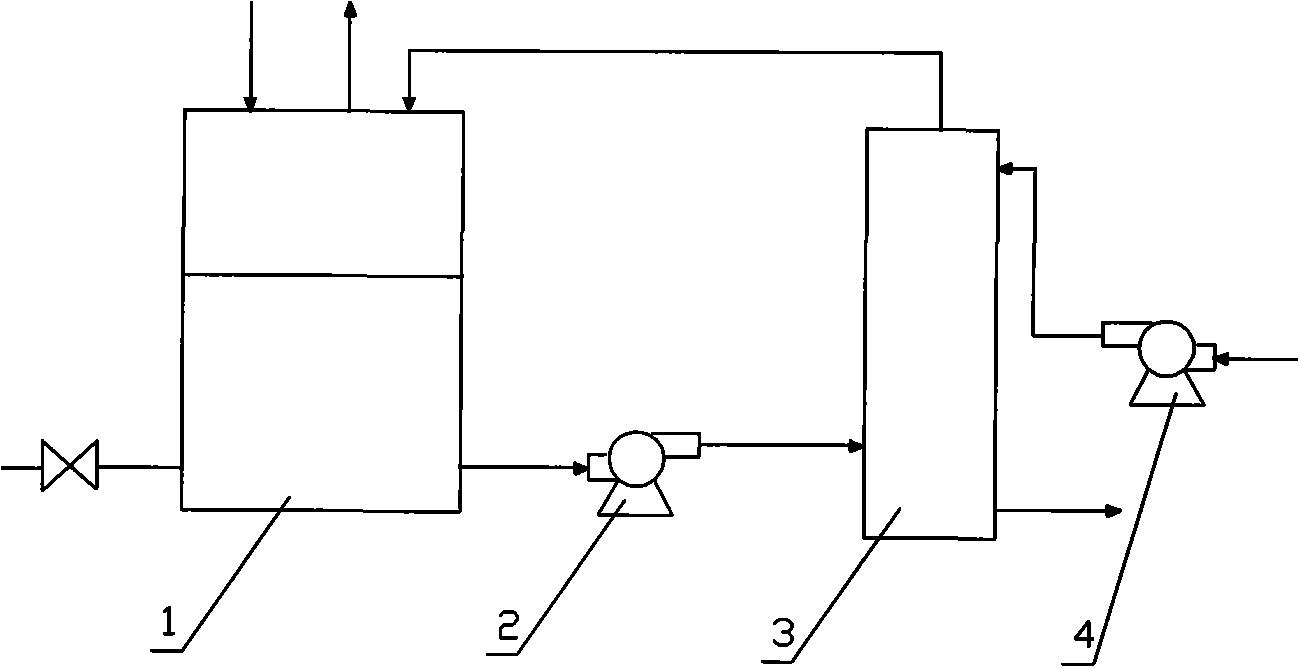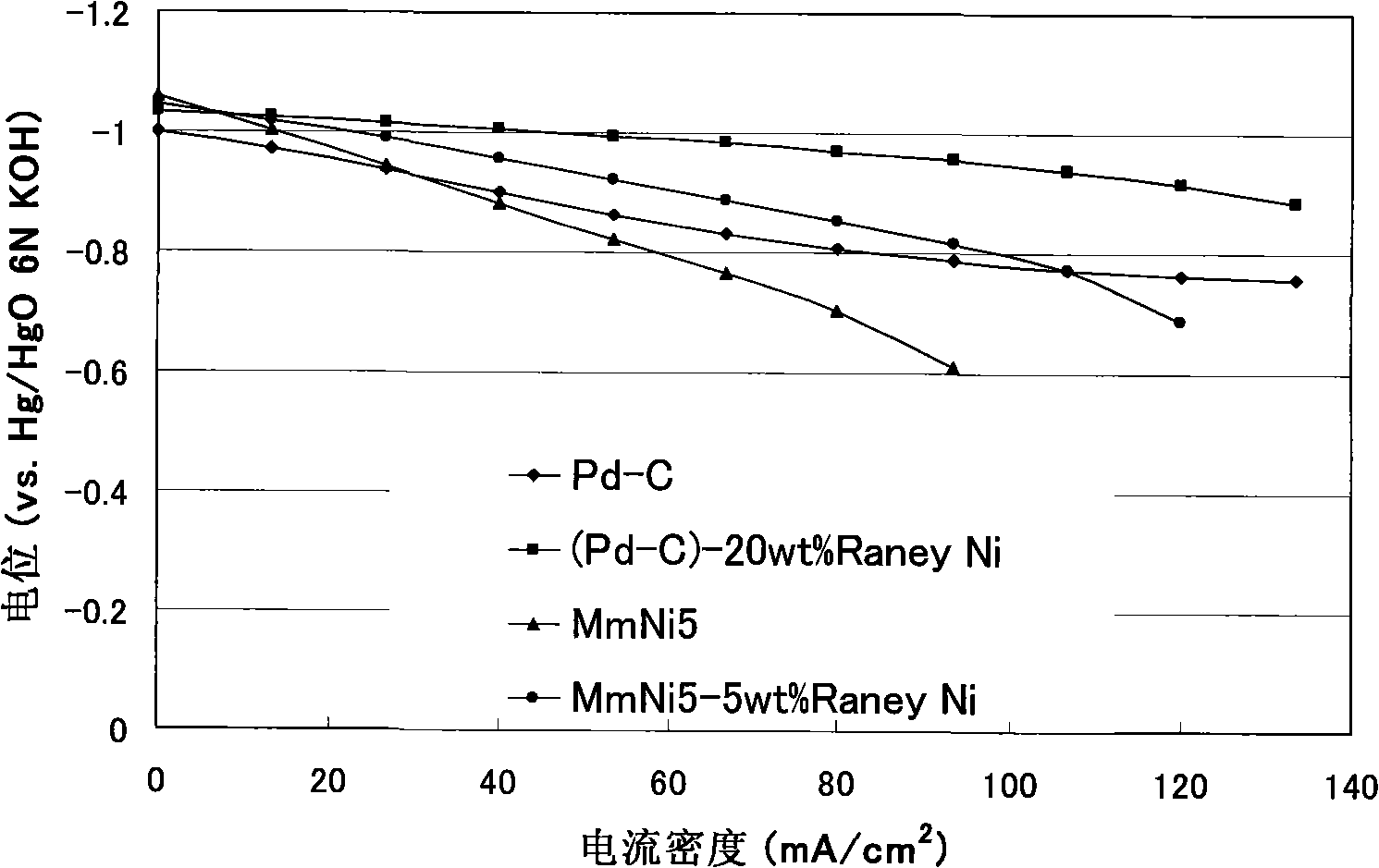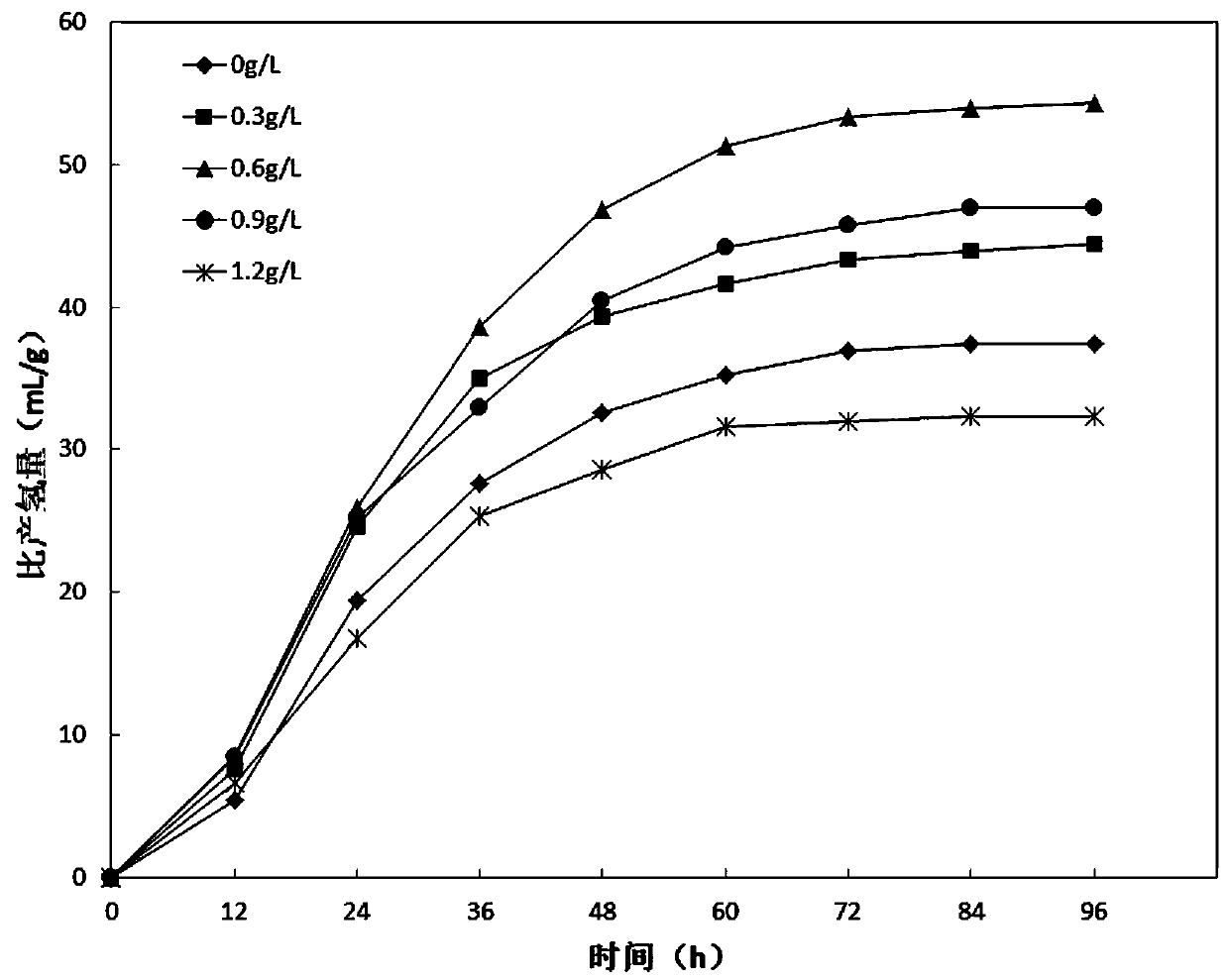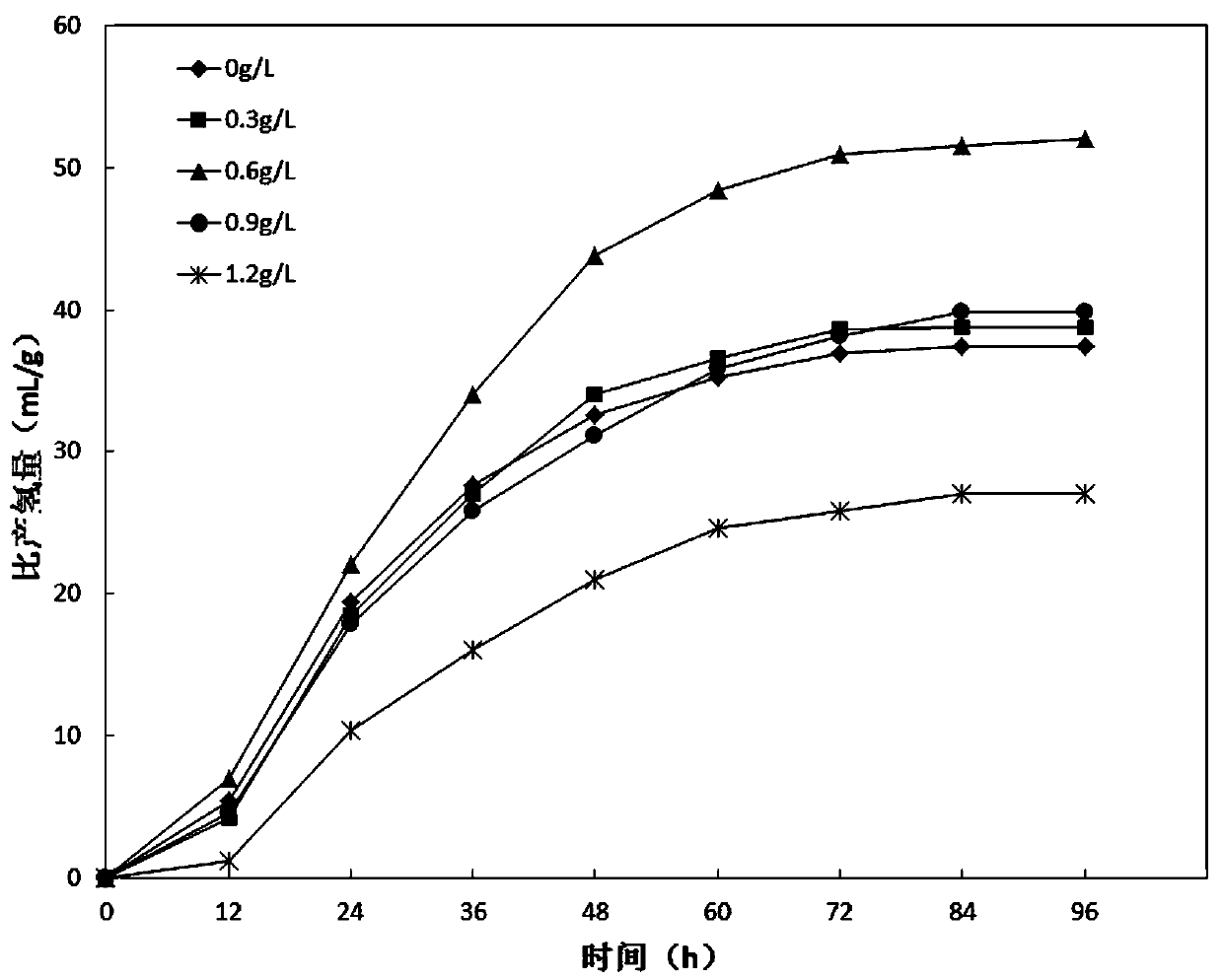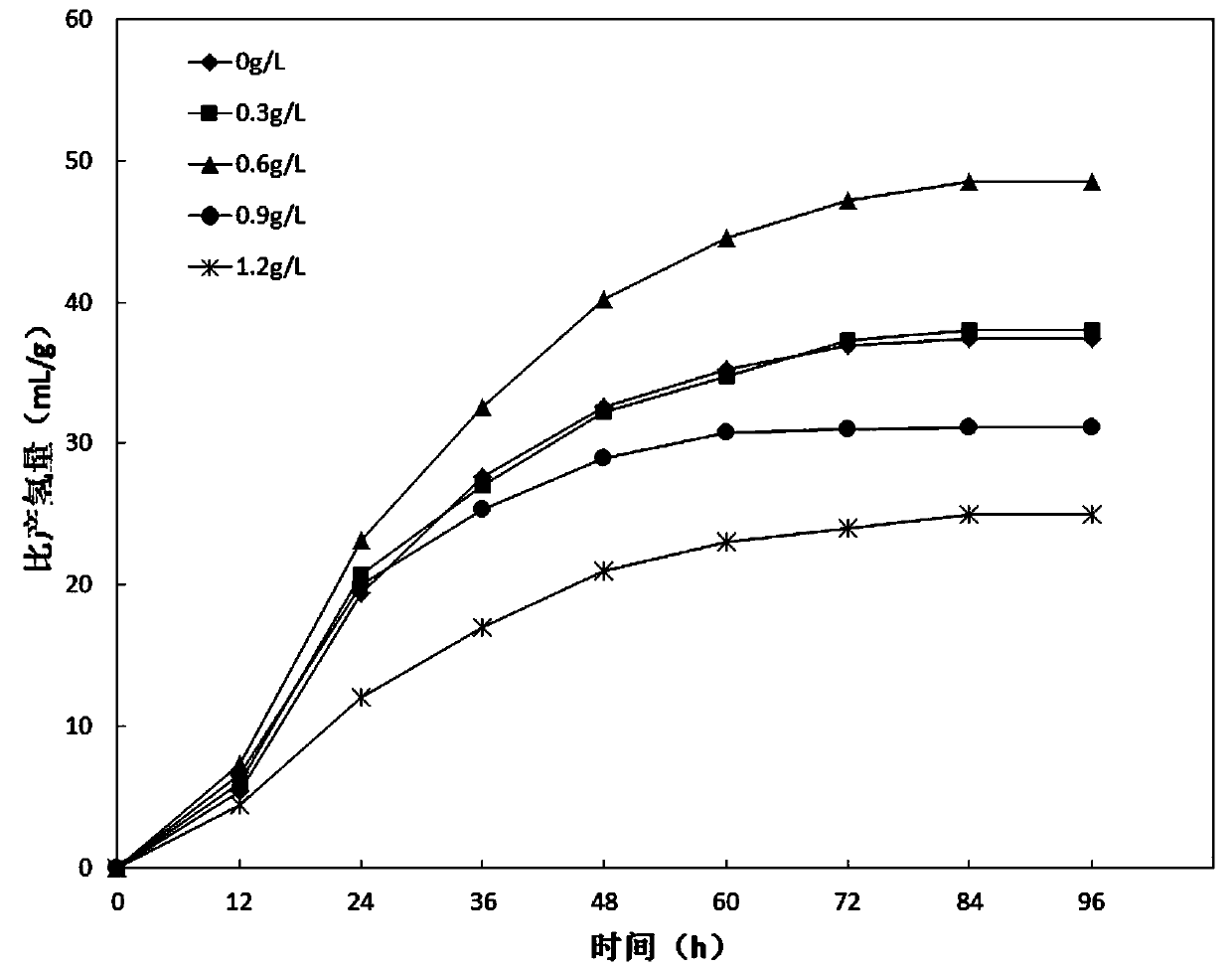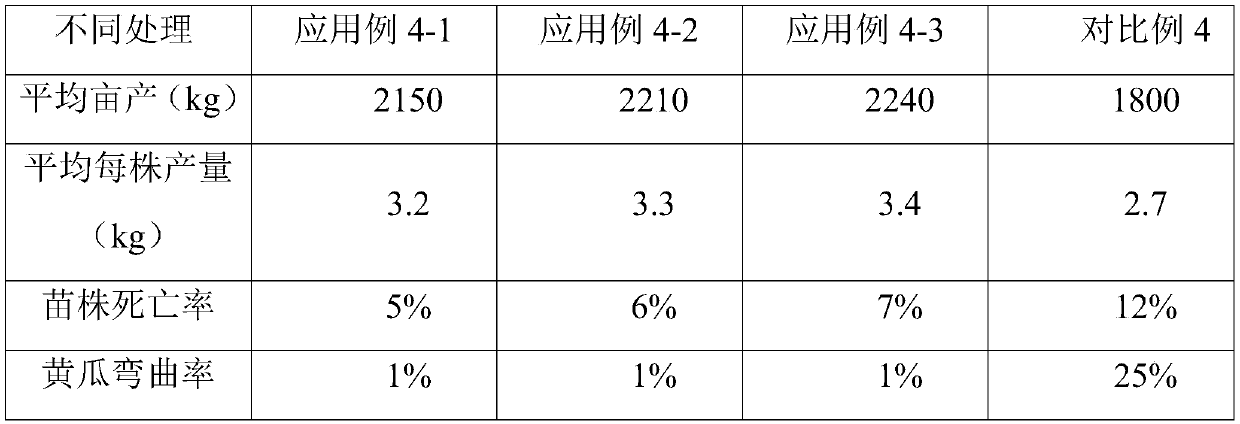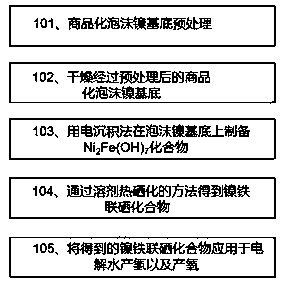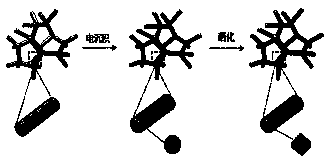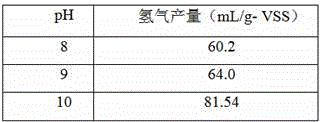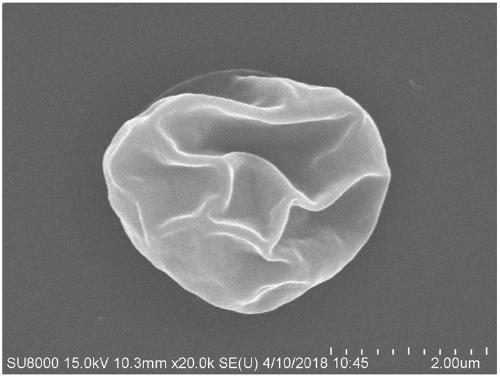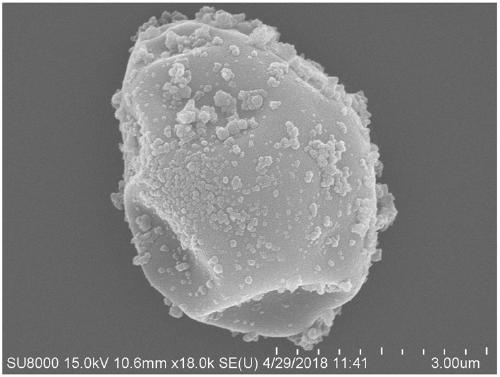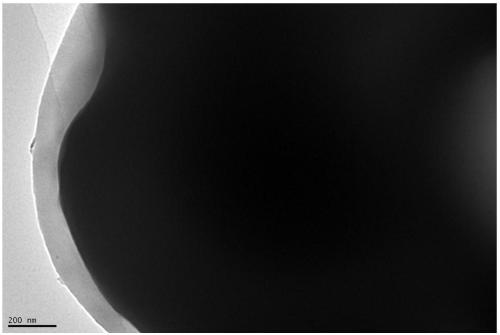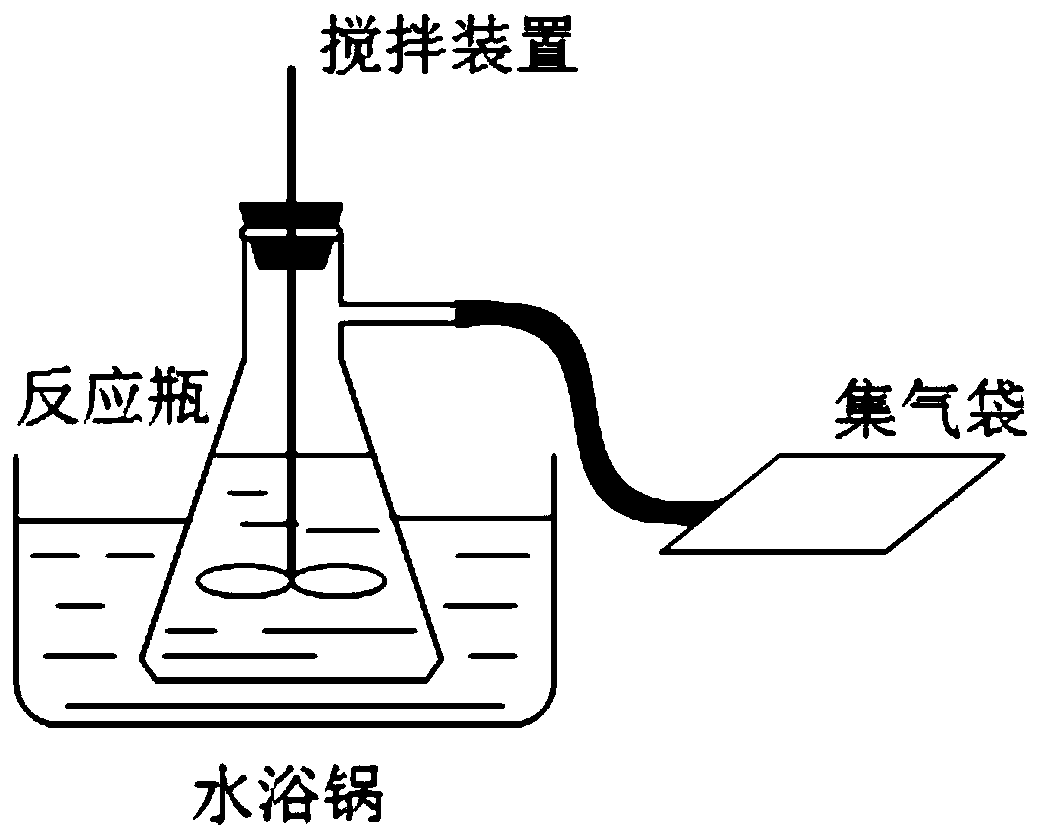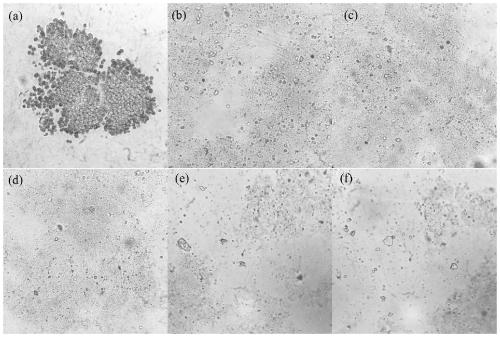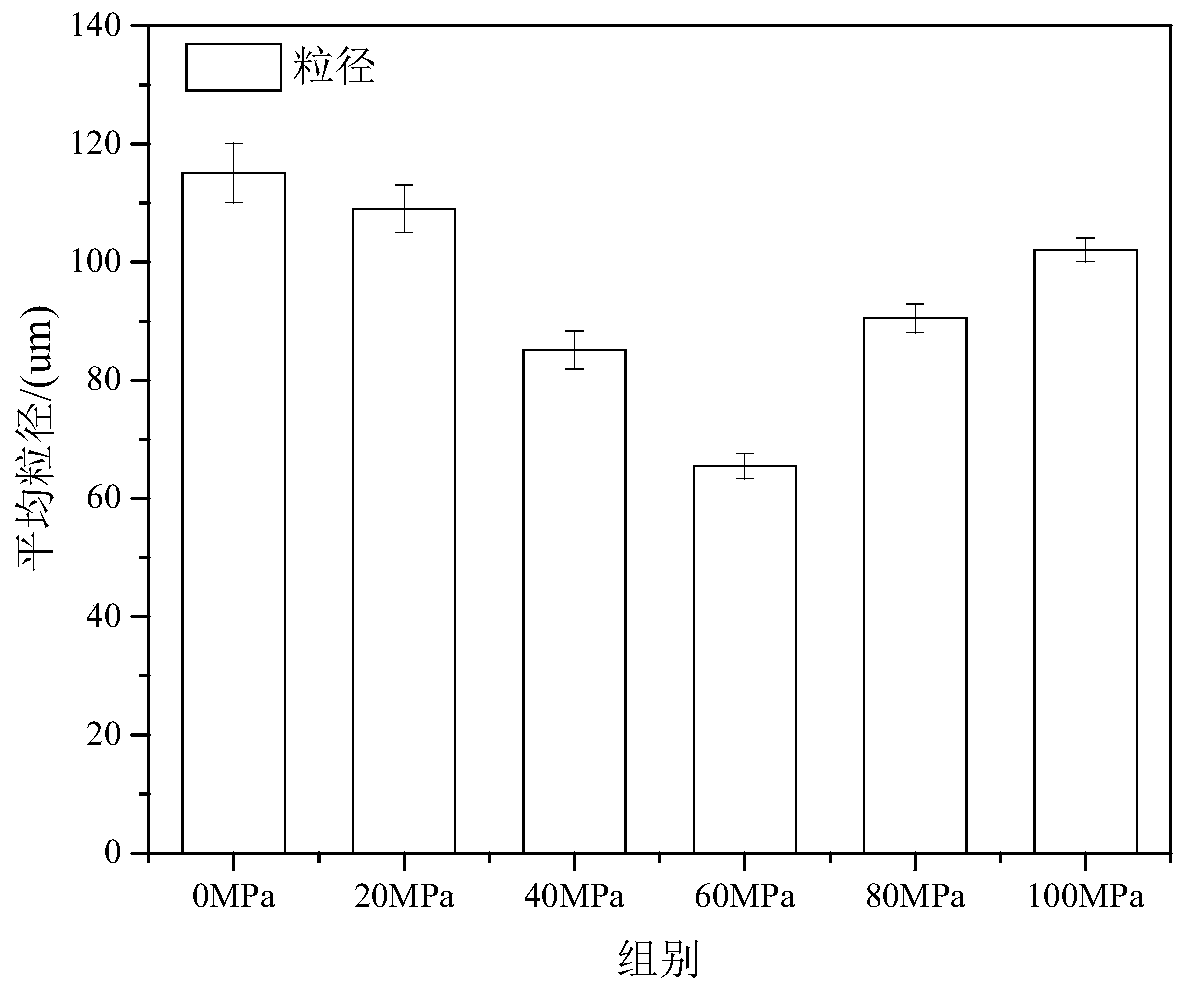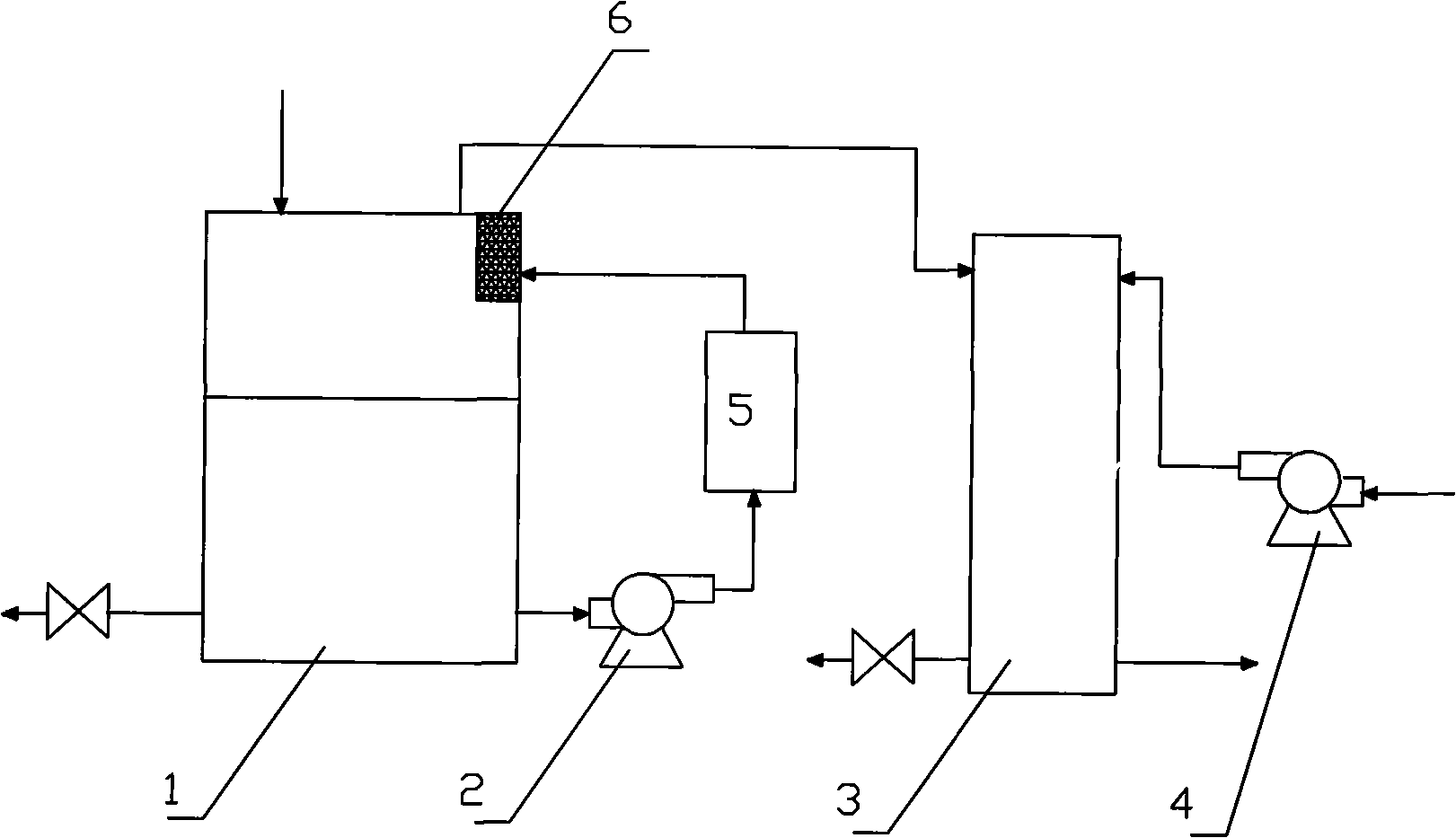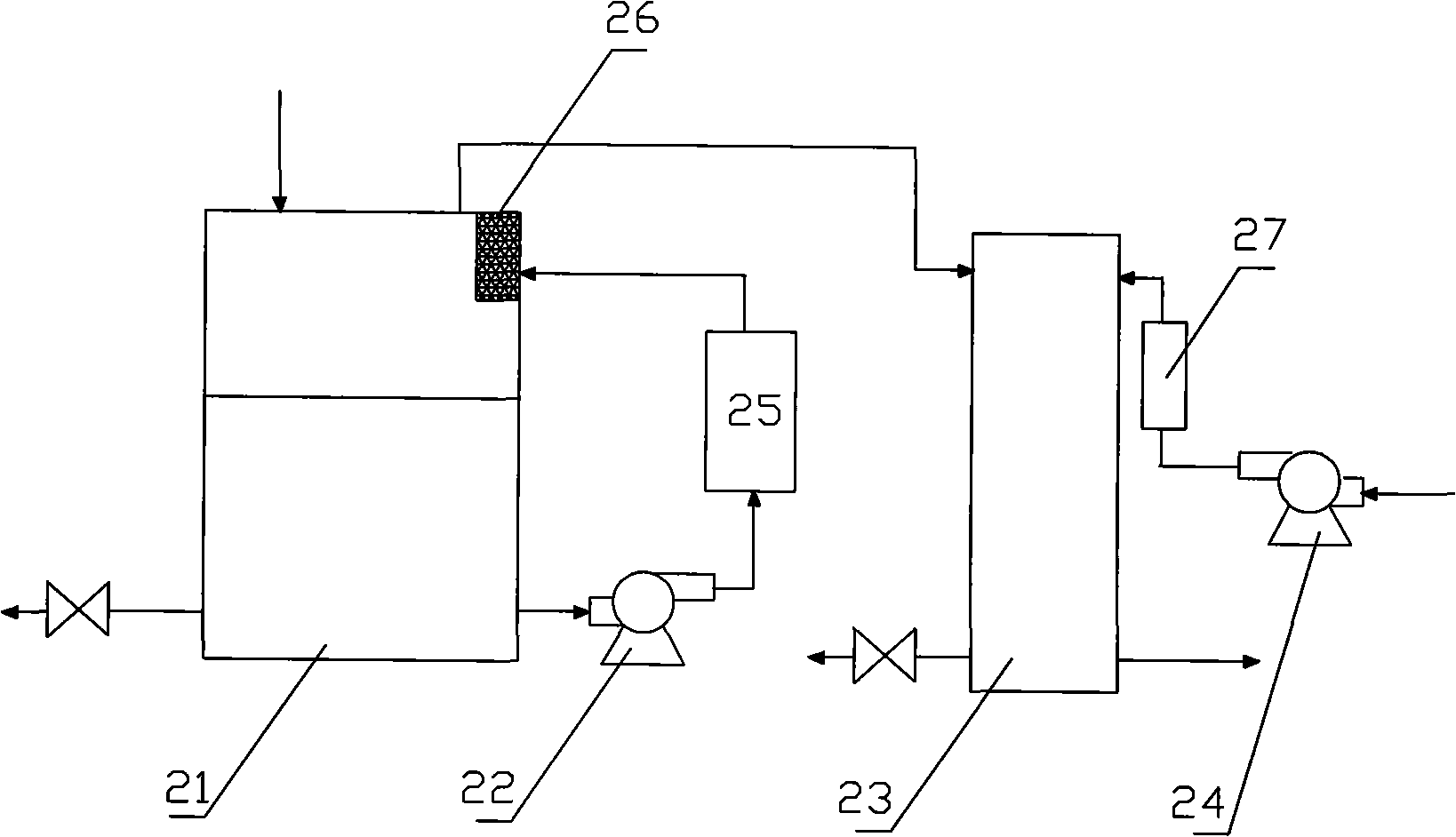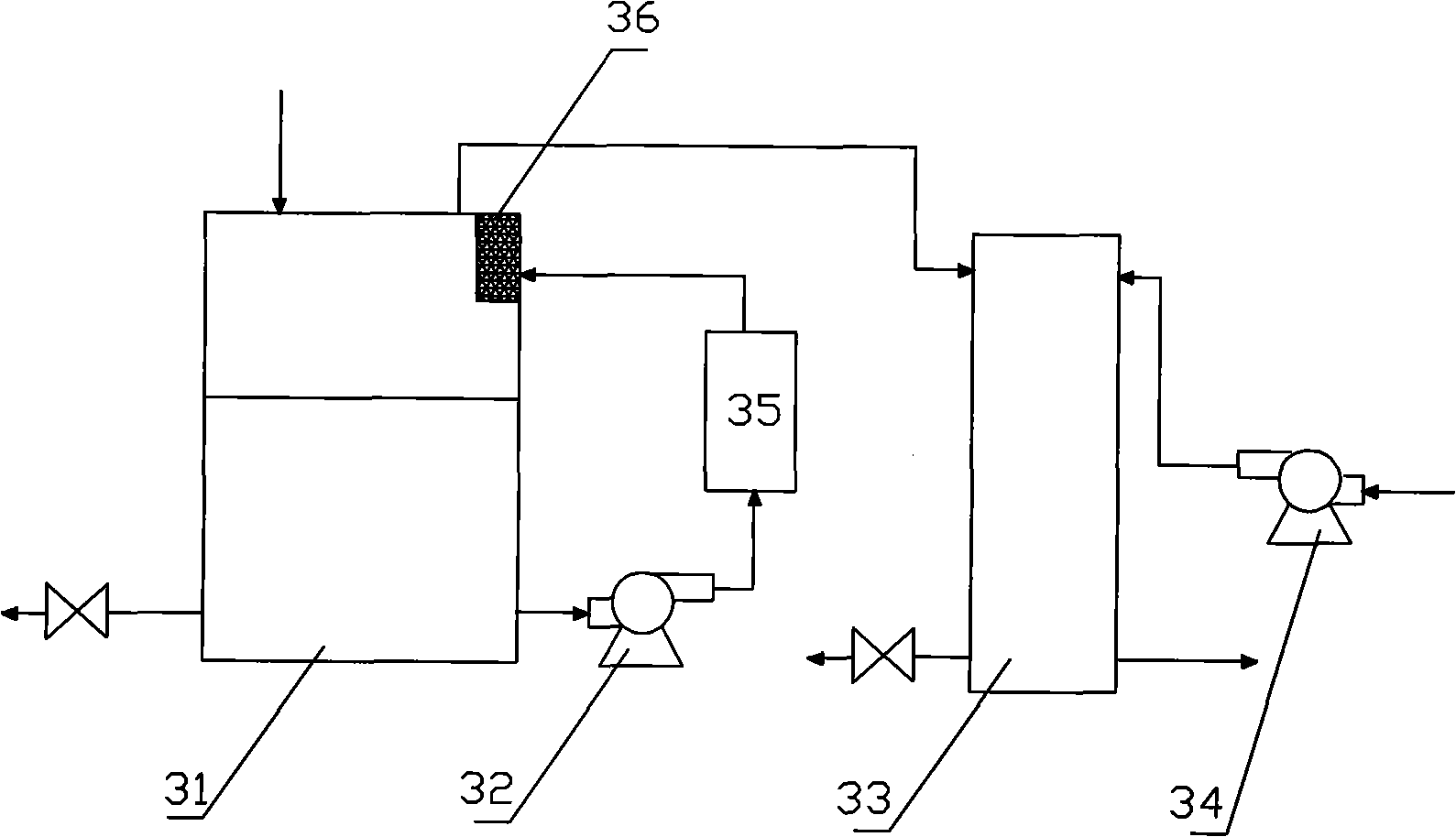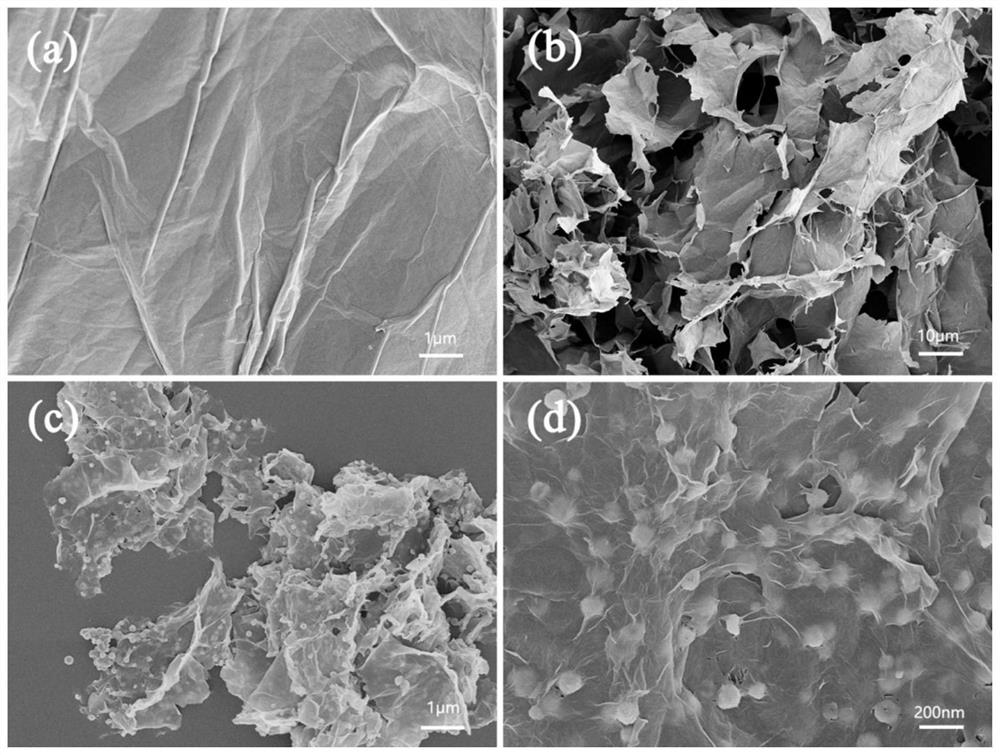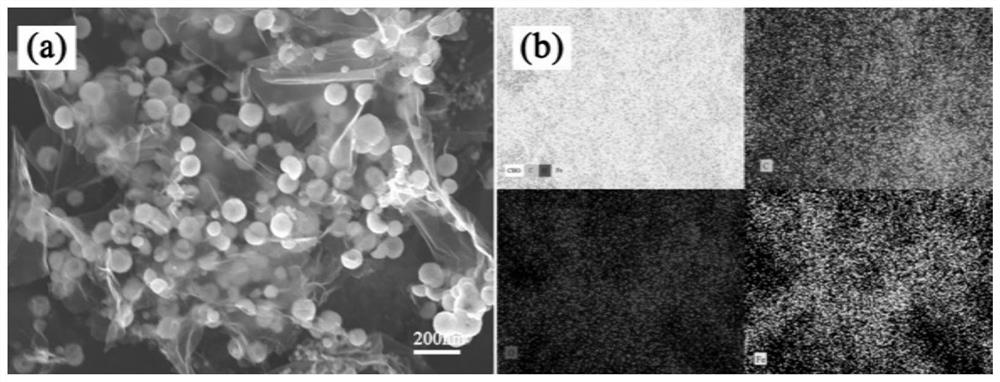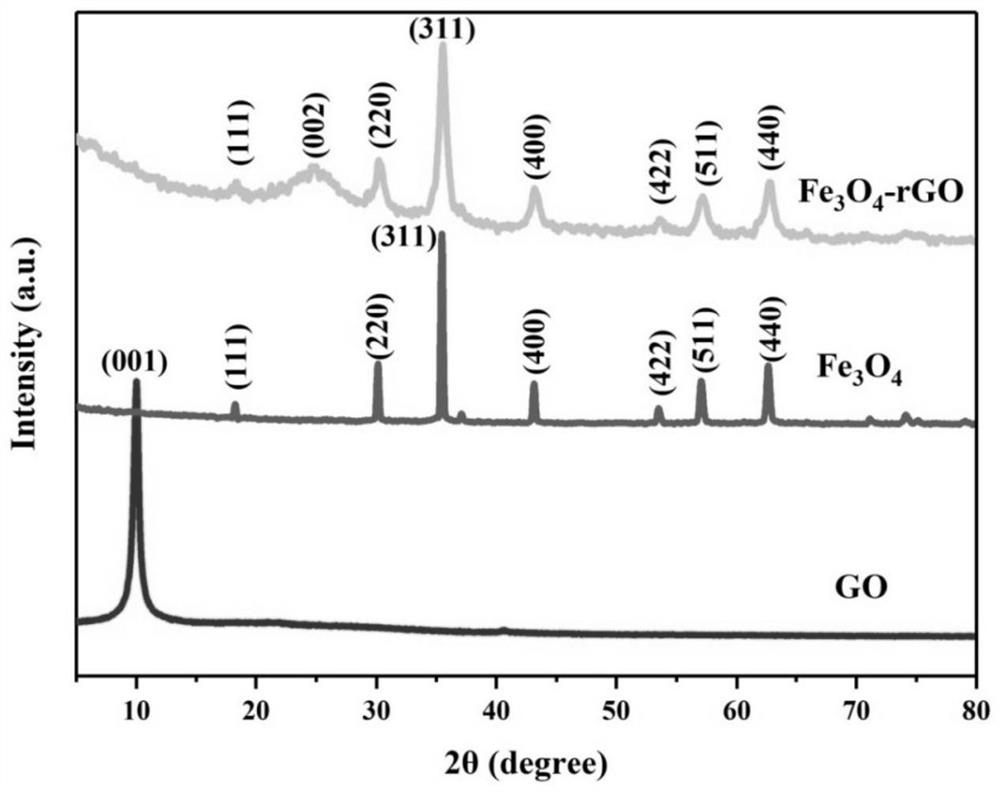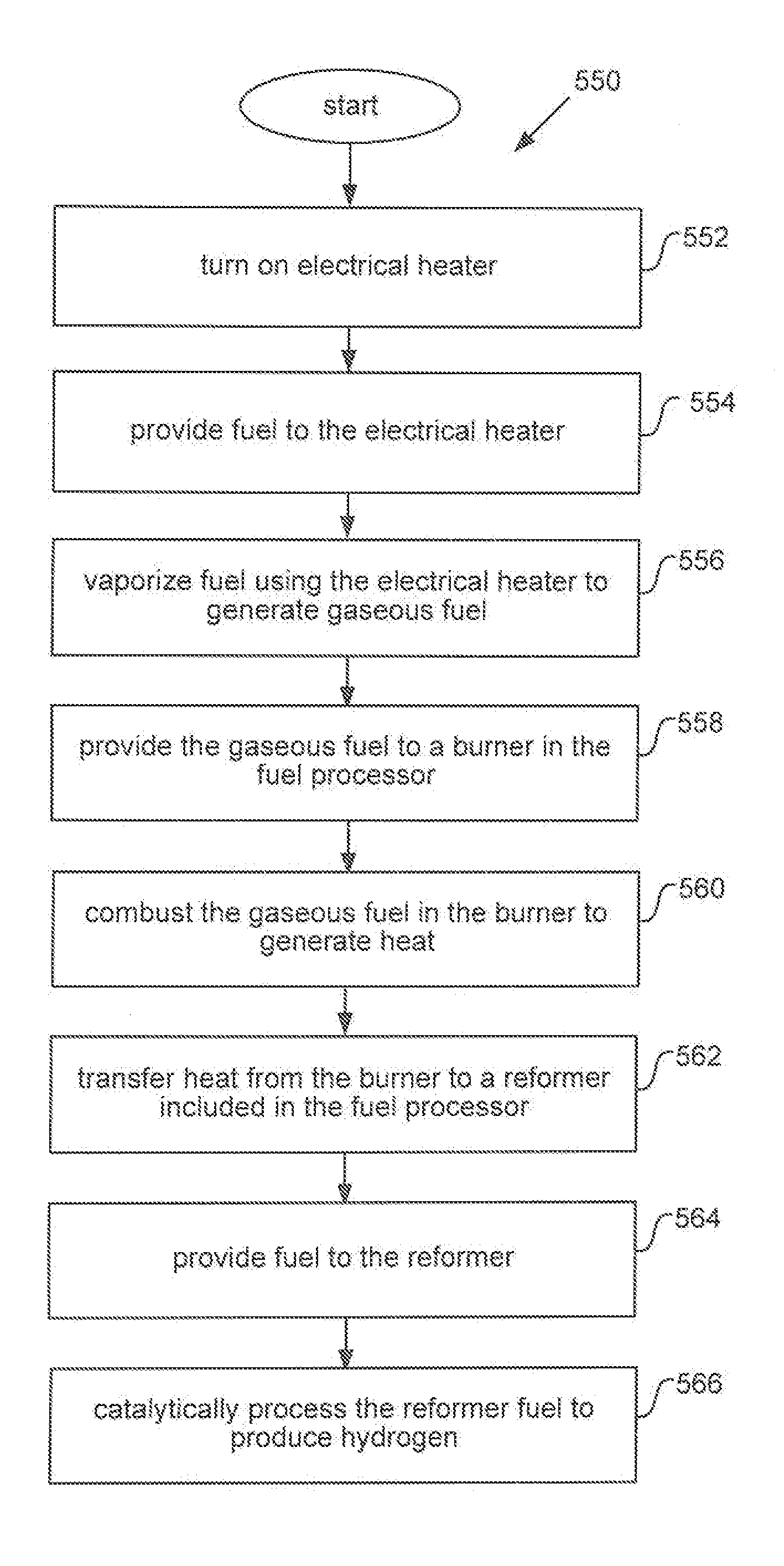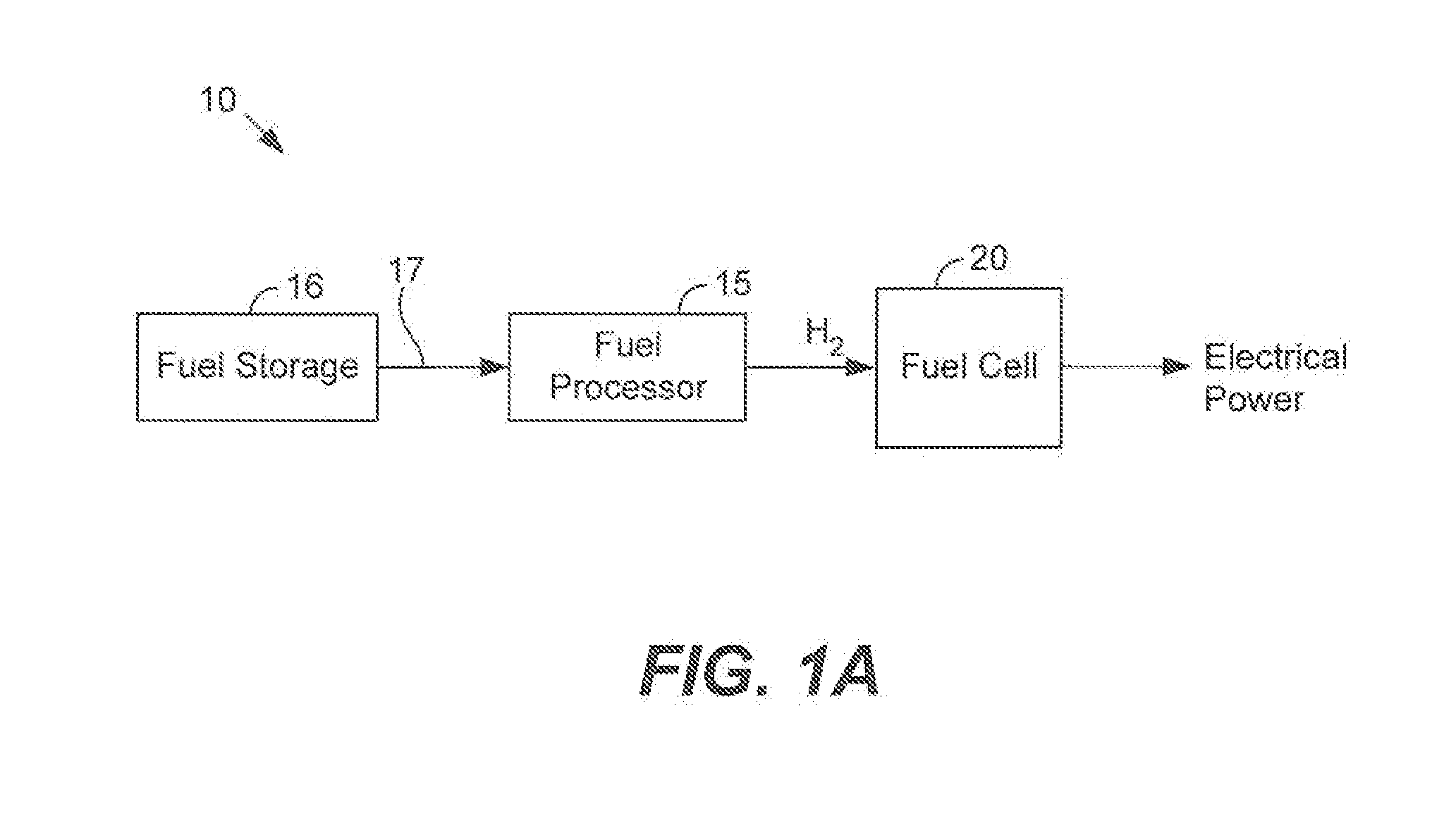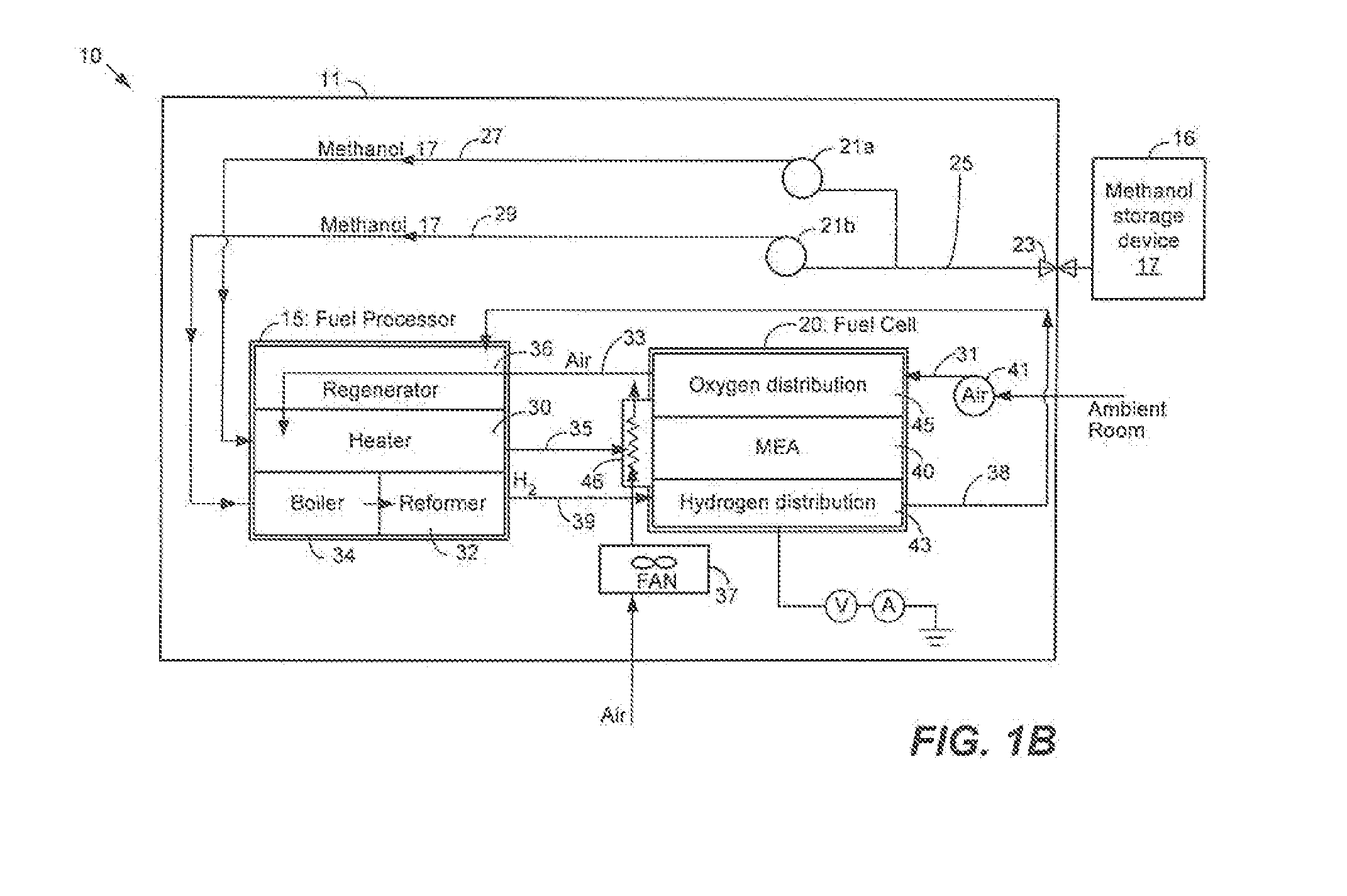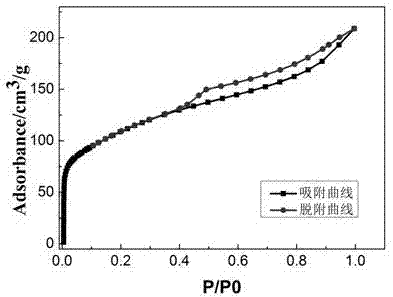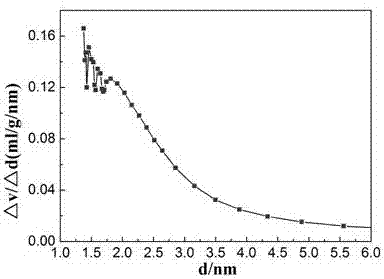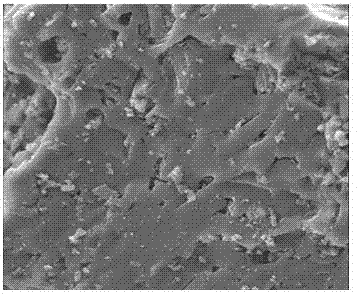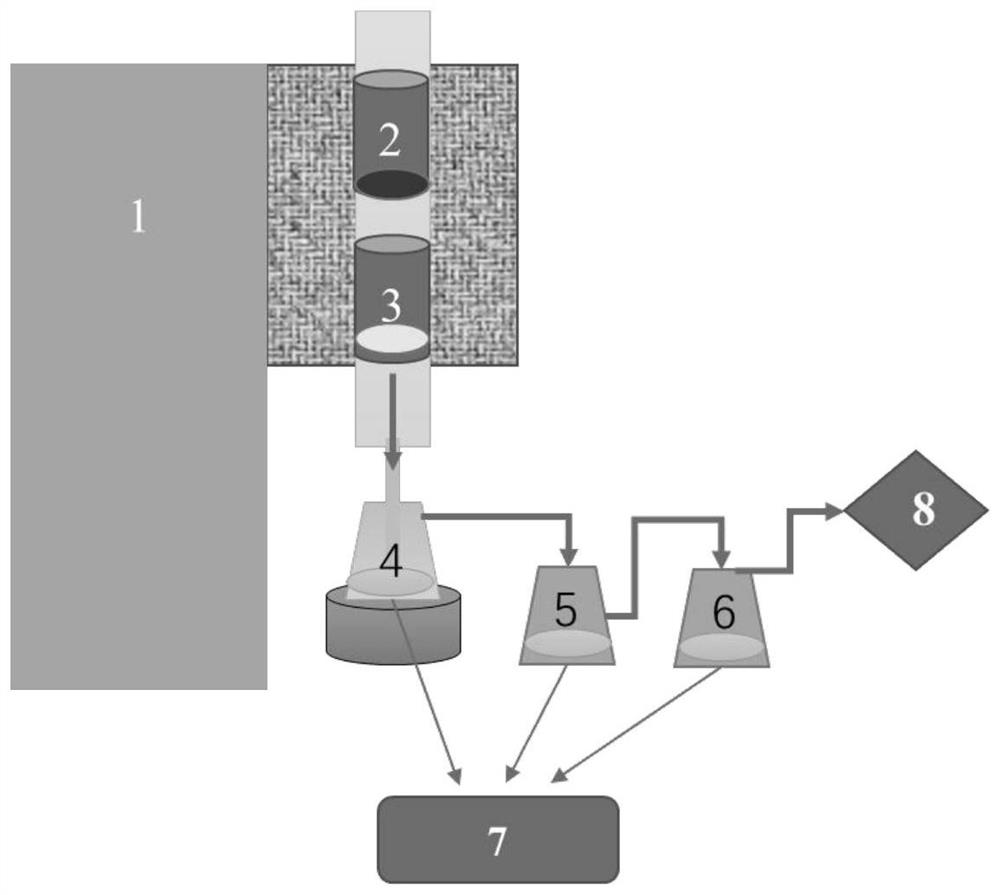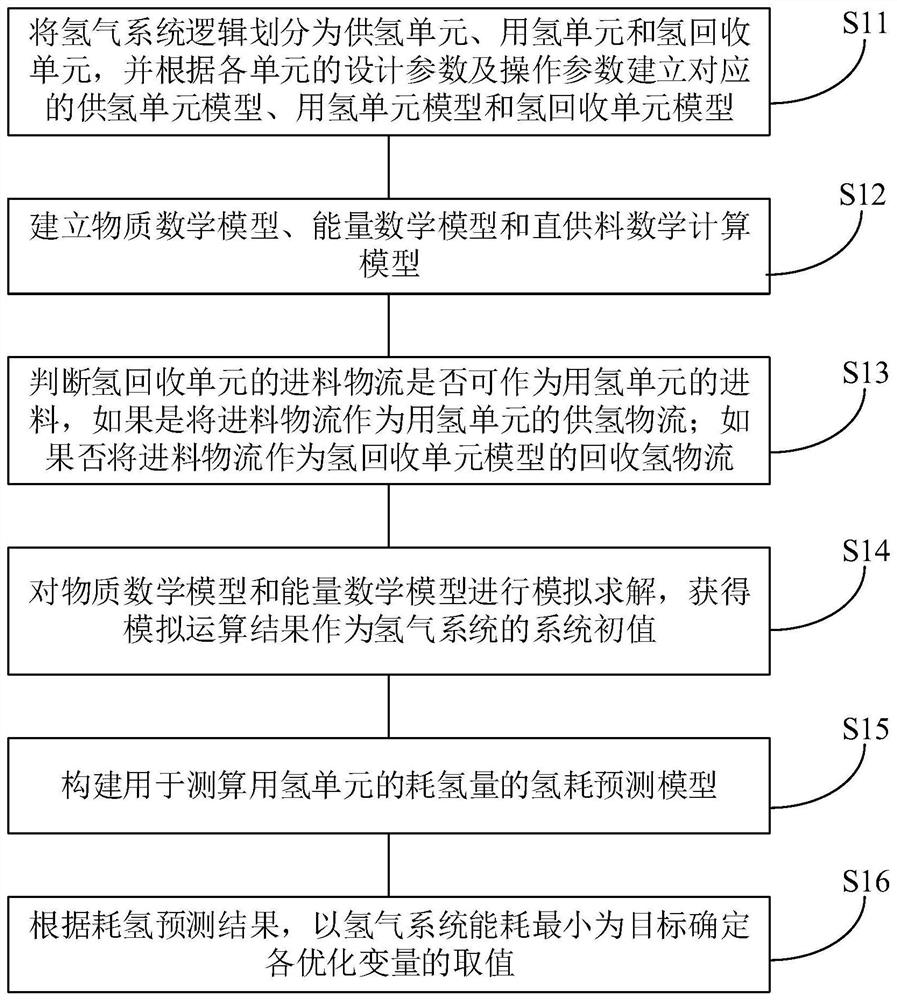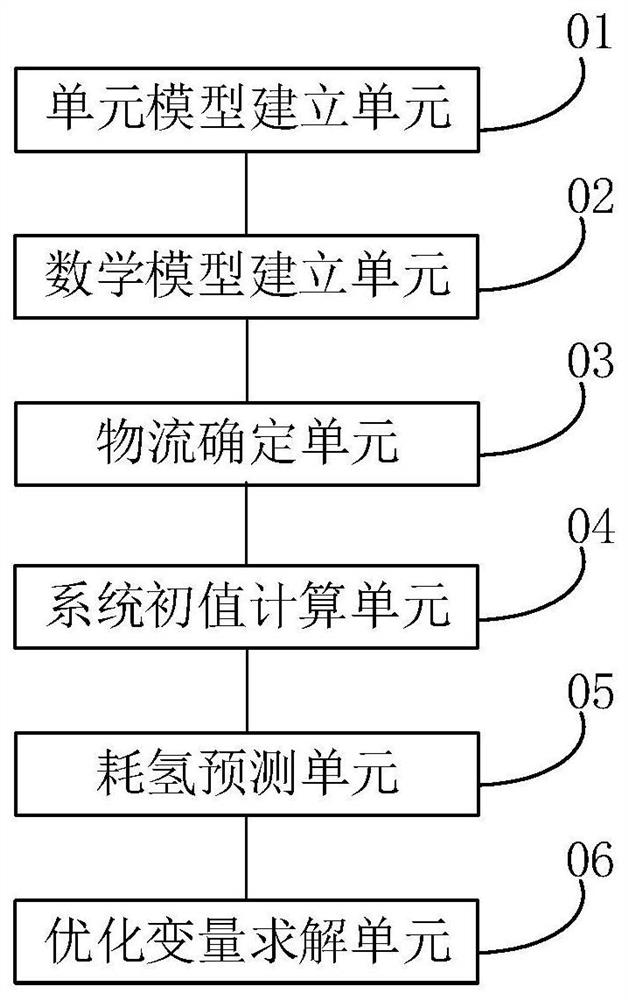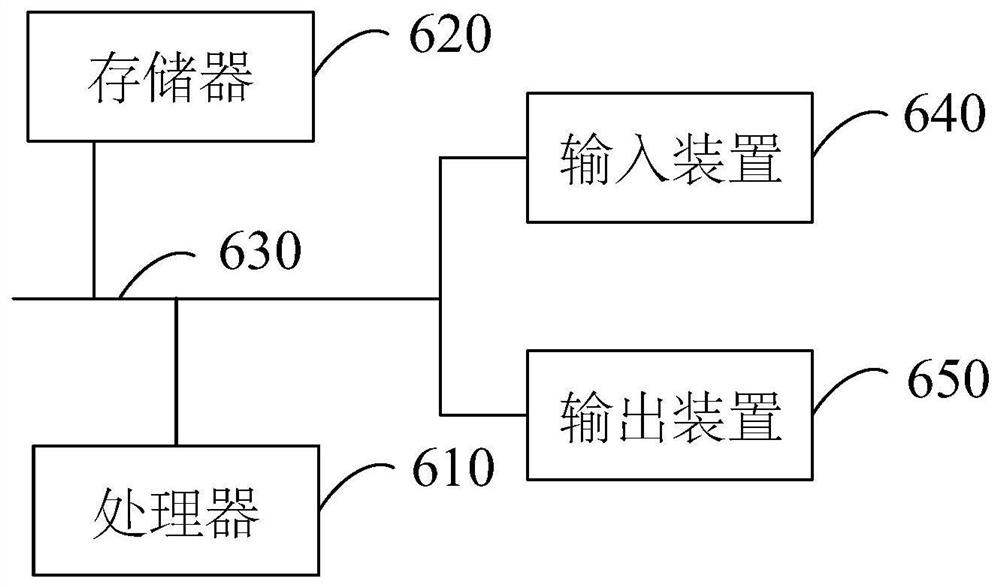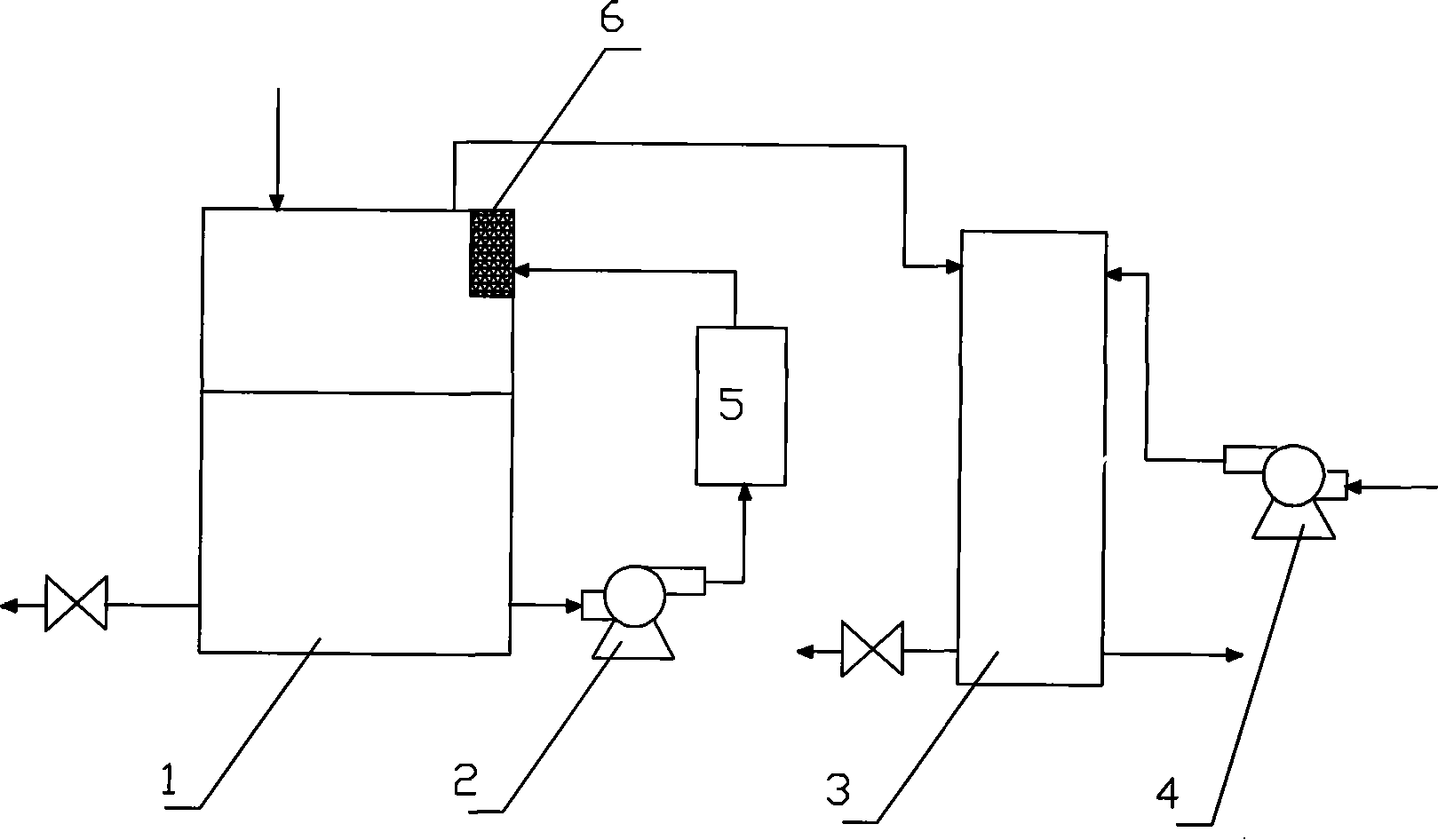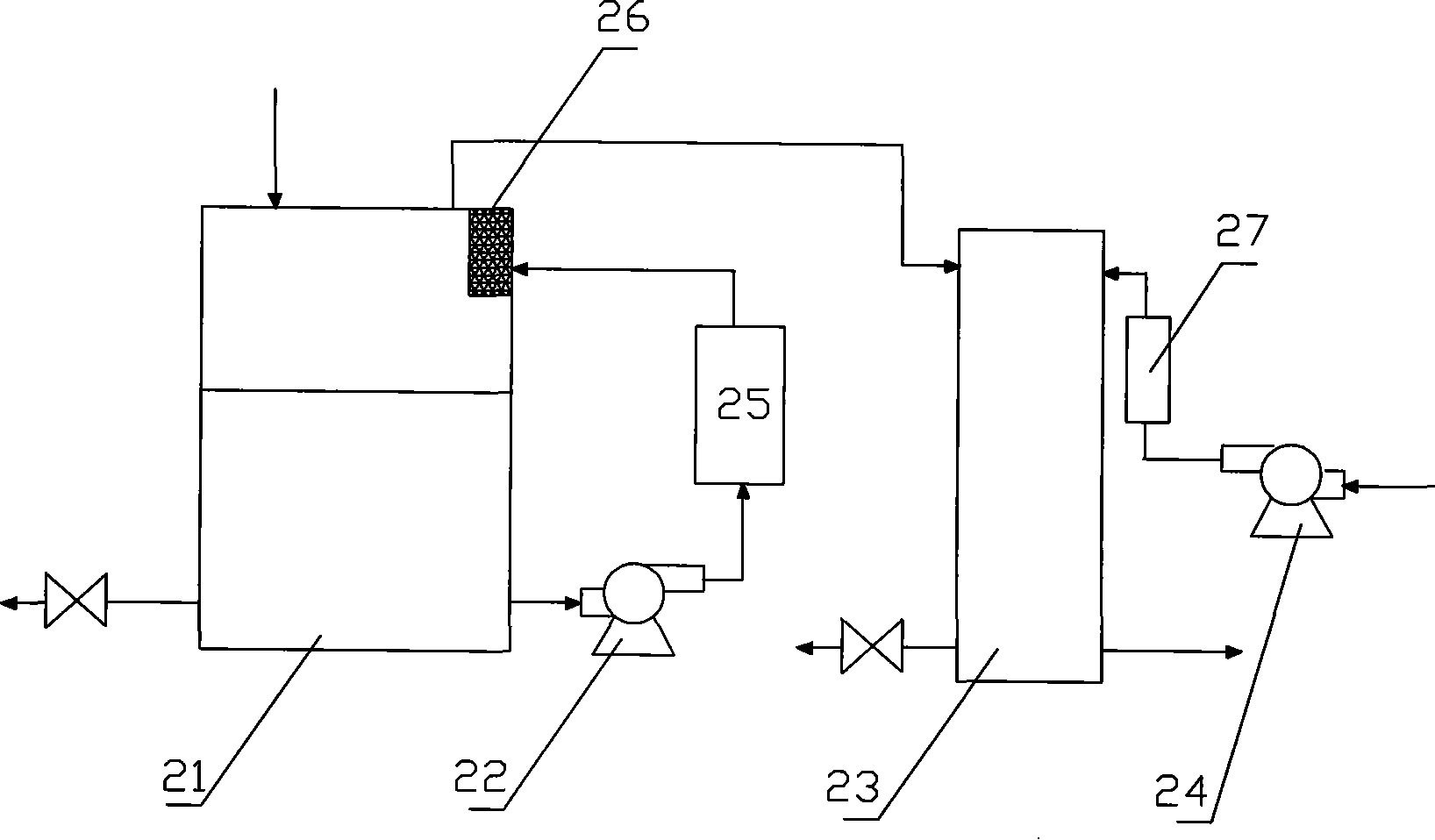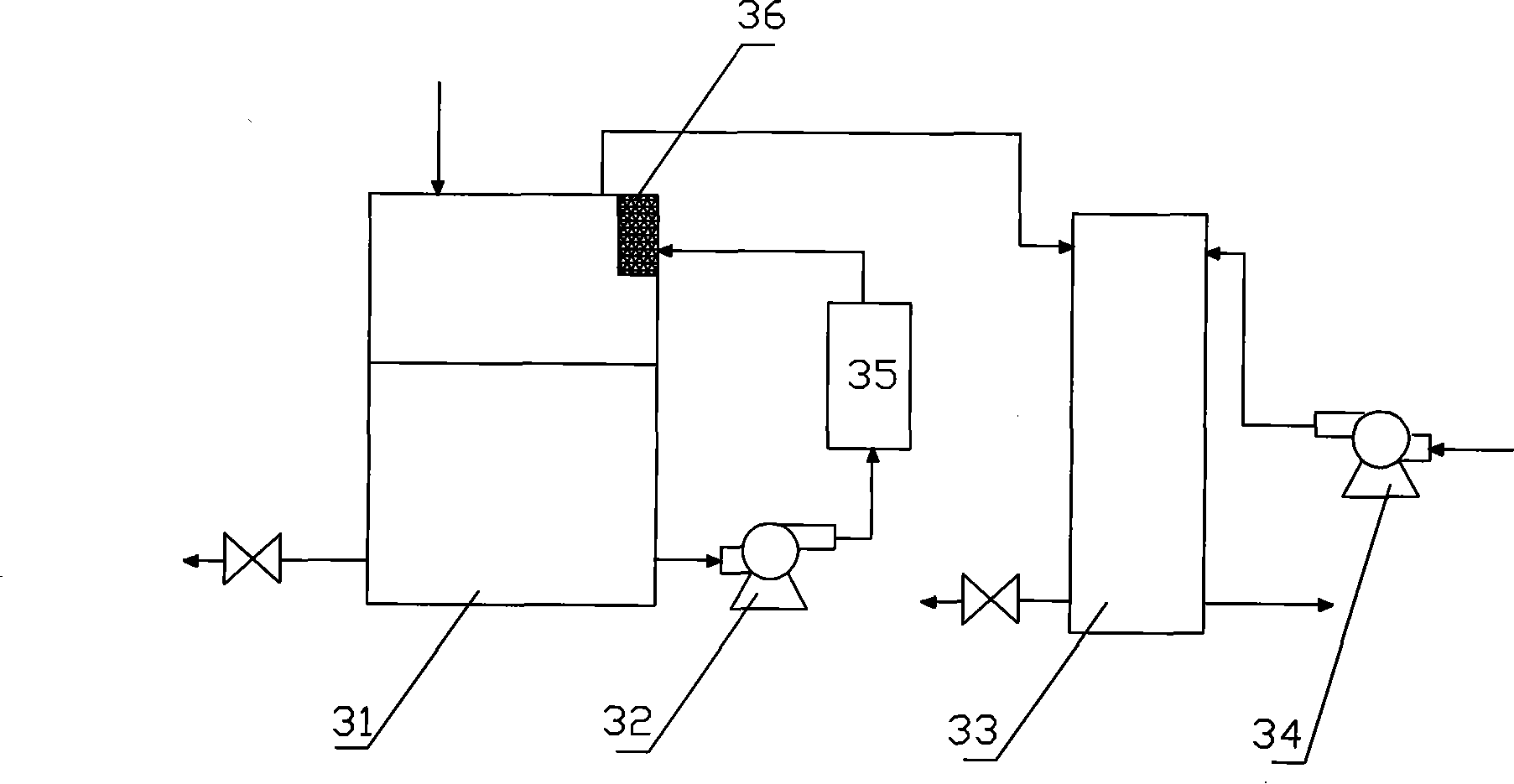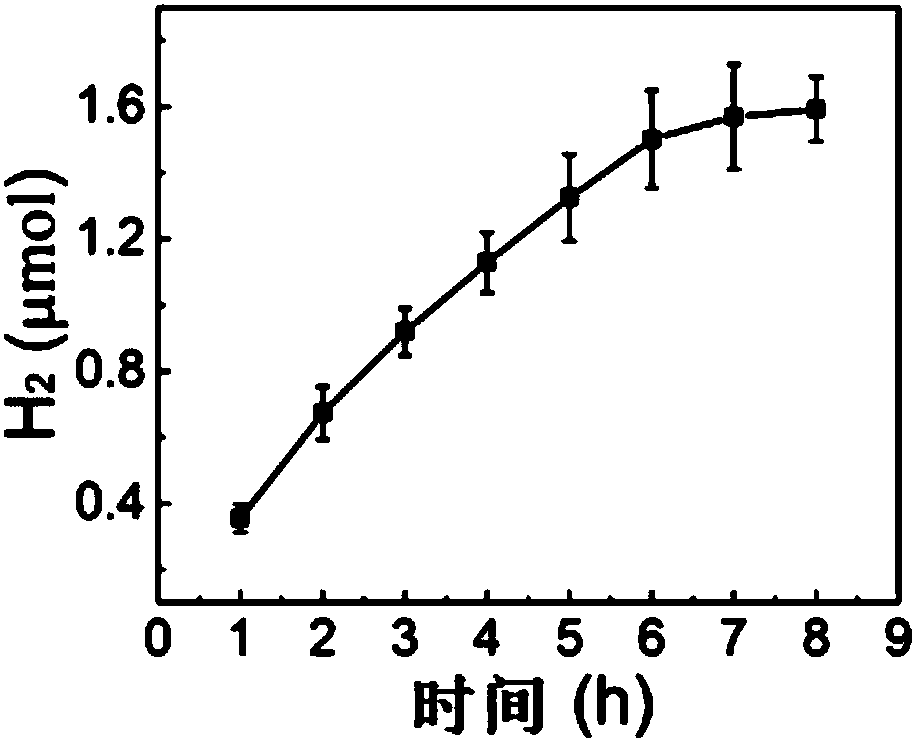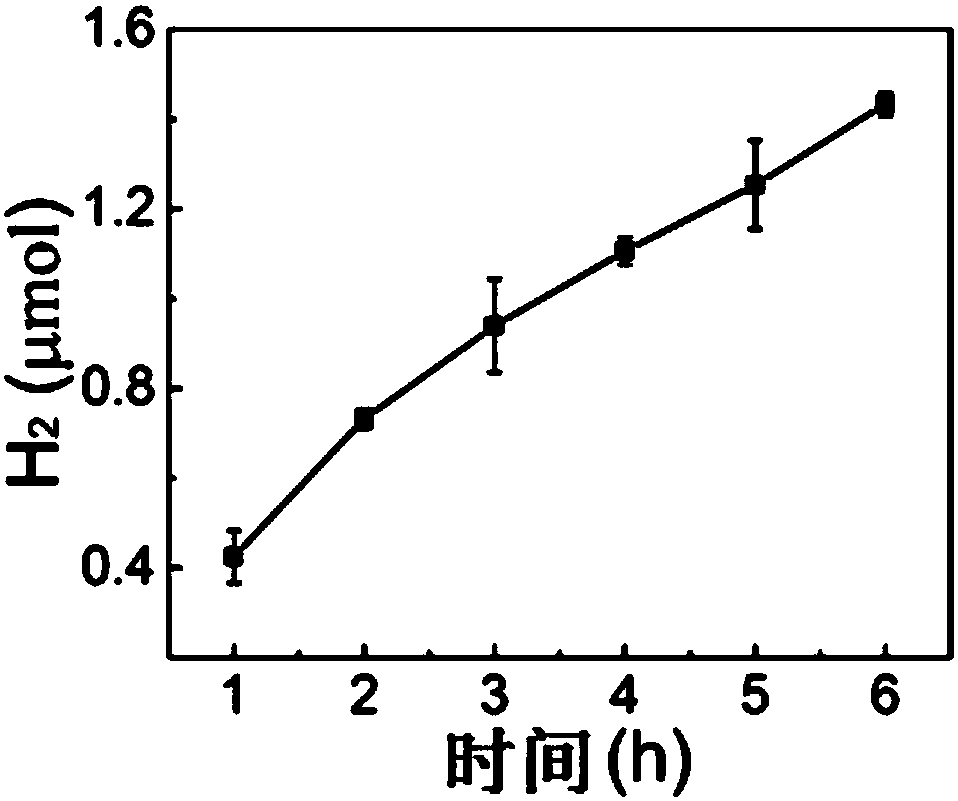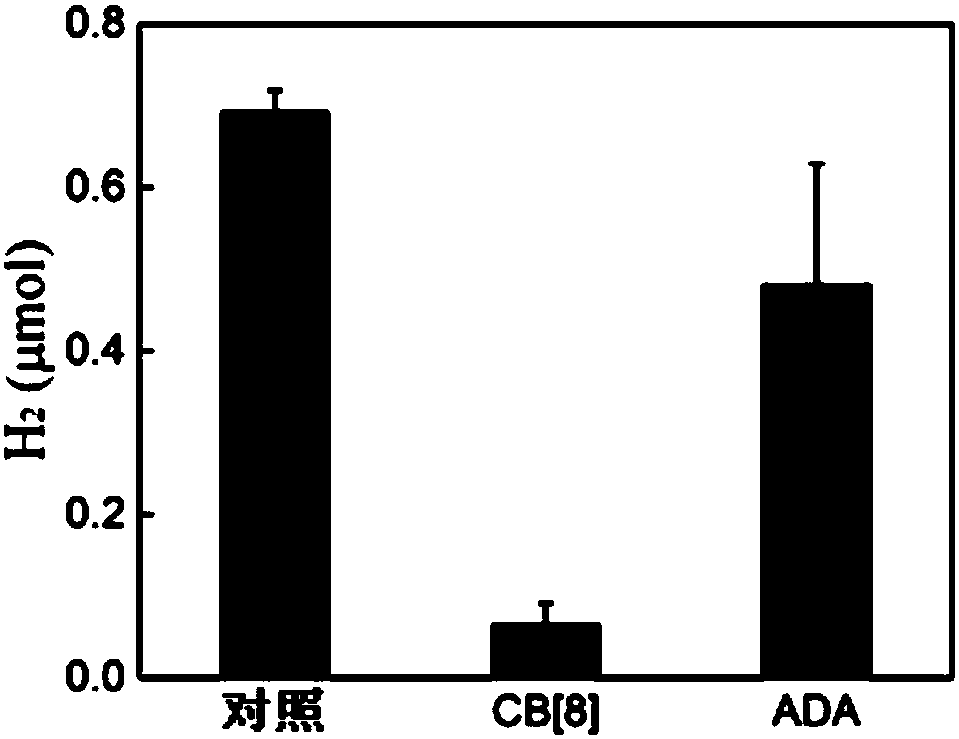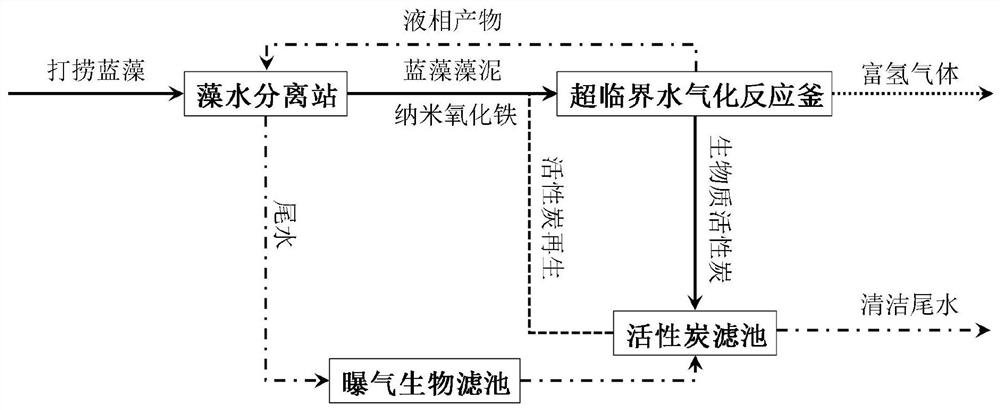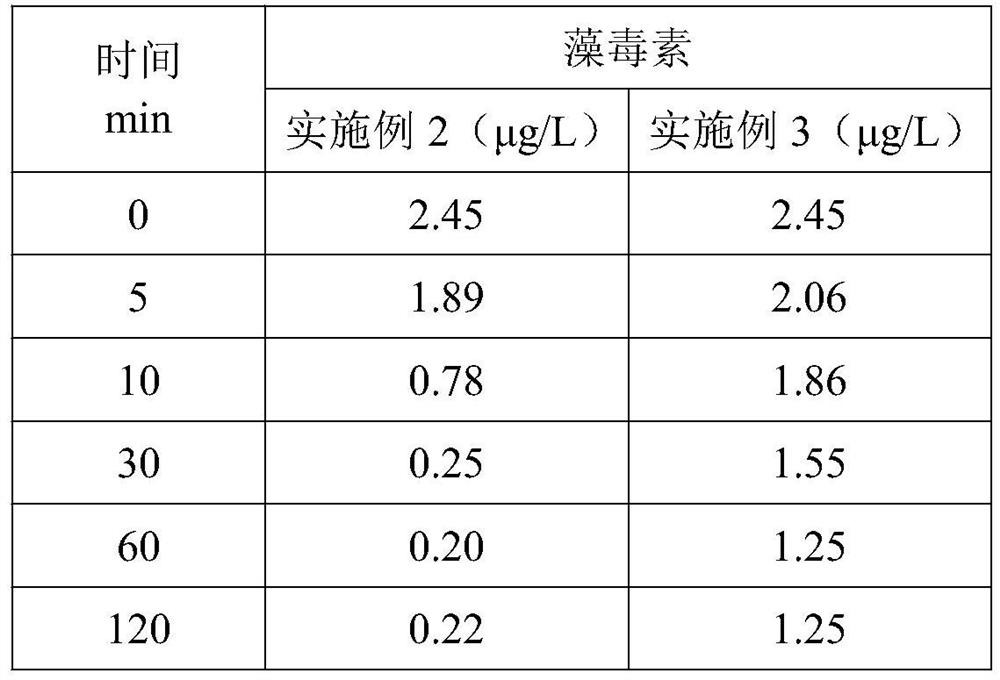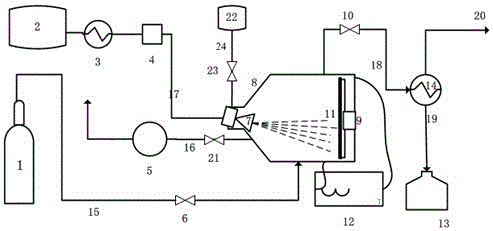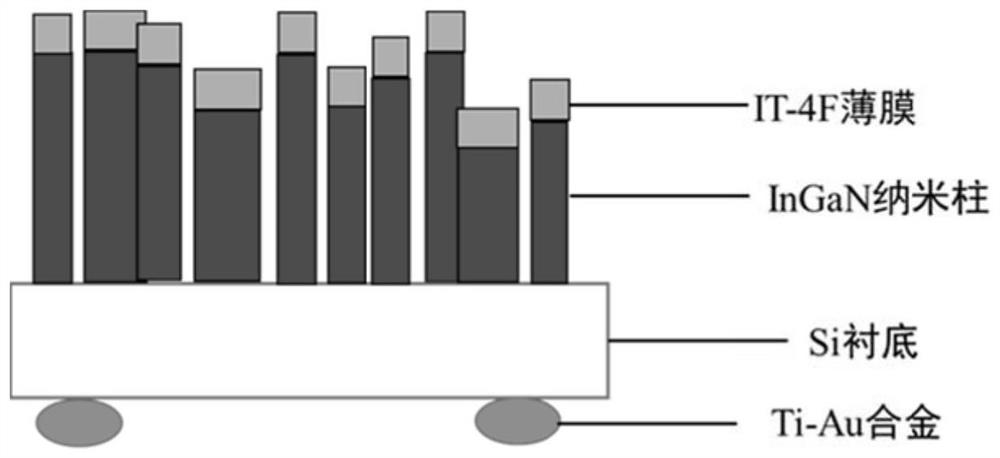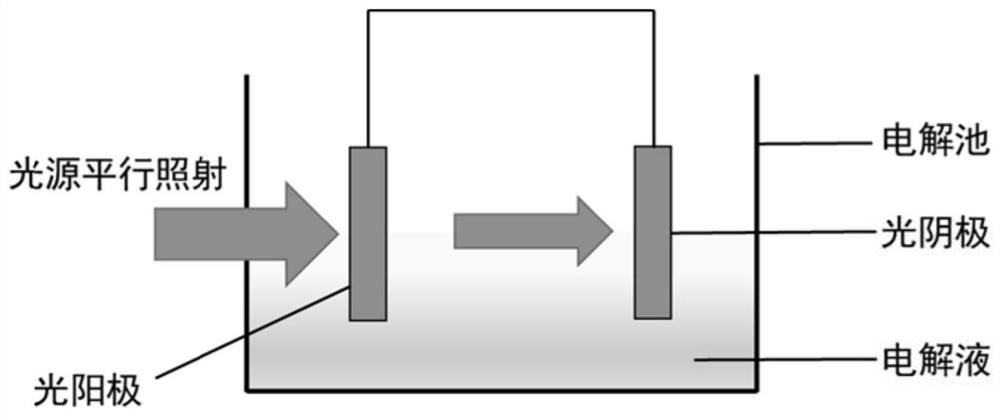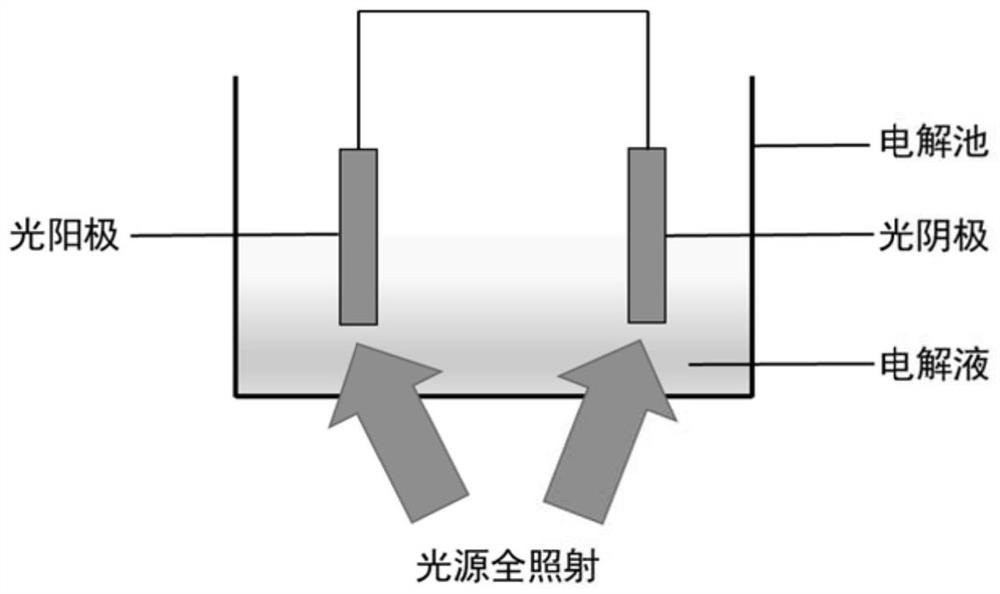Patents
Literature
35results about How to "Promote hydrogen production" patented technology
Efficacy Topic
Property
Owner
Technical Advancement
Application Domain
Technology Topic
Technology Field Word
Patent Country/Region
Patent Type
Patent Status
Application Year
Inventor
Catalyst for preparing formic acid from carbon dioxide by electroreduction and preparation method of catalyst
ActiveCN109675586ASimple manufacturing methodHigh reactivityPhysical/chemical process catalystsOrganic compound preparationPtru catalystPhysical chemistry
The invention provides a catalyst for preparing formic acid from carbon dioxide by electroreduction and a preparation method of the catalyst, and belongs to the field of electro-catalysis. The catalyst is a chalcogen-doped metal electrocatalyst, chalcogen contains at least one of sulfur, selenium and tellurium, and metal contains at least one of indium, stannum, lead and bismuth. The preparation method comprises following steps: 1), an elementary substance of chalcogen or a compound of chalcogen is dissolved in N,N-dimethyl formamide with metal salts, a carbon material is placed, and a mixtureis transferred into a high-pressure kettle and subjected to solvent heat treatment; 2), after the solvent heat treatment, the carbon material is taken out, washed by deionized water and dried, a carbon material supported chalcogen-doped metal oxide precursor is obtained and then subjected to electroreduction, and the carbon material supported chalcogen-doped metal electrocatalyst is obtained. When applied to the reaction of preparing formic acid from carbon dioxide by electroreduction, the catalyst is high in reactivity, high in selectivity and stable in catalytic performance and maintains high formic acid selectivity in a wide current range.
Owner:XIAMEN UNIV
Method for improving hydrogen gas yield of kitchen waste anaerobic digestion
InactiveCN101250554AInhibitory activityHigh hydrogen yieldWaste based fuelFermentationDry weightNitrogen gas
The invention relates to a method for increasing the hydrogen output through anaerobically digesting restaurant garbage and relates to a method for producing the hydrogen output through anaerobically digesting the restaurant garbage, which comprises following steps: firstly, weighing according to granular sludge: the restaurant garbage=1:0.2-0.4 part dry weight, adding the granular sludge and the restaurant garbage into a bottle, filling nitrogen or argon, sealing, statically culturing under the temperature of 4-20DEG C, finishing domestication when the pH value is lowered to 4.5-5.5, preserving, then, weighing according to the restaurant garbage: the granular sludge which is domesticated well=1 part dry weight:0.59-0.294part dry weight, then, arranging the restaurant garbage and the granular sludge into a container, evenly mixing, filling the nitrogen or the argon, then, sealing, concussing and stirring under the temperature of 40-50DEG C and the speed of 100-130r / min, starting anaerobic digestion, wherein the hydrogen yield is 65.63mL / g VS-94.04mL / g VS, fermenting firedamp with residual material after the hydrogen stops producing, and transforming the residual material into the firedamp. The method of the invention has the characteristics of low energy consumption, low cost and high heat value net output rate, and the hydrogen yield can reach 93mL / g restaurant garbage (dry weight) through using the method of the invention, which is increased by 20-30% compared with existing hydrogen yield.
Owner:TONGJI UNIV
Catalyst for preparing multi-carbon product by electro-reduction of carbon dioxide and carbon monoxide and preparation method and application thereof
ActiveCN111229261ASimple manufacturing methodMild reaction conditionsElectrolytic organic productionMetal/metal-oxides/metal-hydroxide catalystsPtru catalystHalogen
The invention discloses a catalyst for preparing a multi-carbon product by electro-reduction of carbon dioxide and carbon monoxide as well as a preparation method and application thereof, and belongsto the field of electro-catalysis. The catalyst is a halogen-modified copper electro-catalyst, and halogen comprises at least one of fluorine, chlorine, bromine and iodine. The preparation method of the catalyst comprises the following steps: loading a copper halide precursor on a gas diffusion layer, and carrying out electric reduction to obtain the halogen-modified copper electro-catalyst, wherein the copper halide precursor comprises at least one of a fluorine copper hydroxide precursor and other copper halide precursors except the fluorine copper hydroxide precursor. The catalyst is applied to a reaction for preparing a multi-carbon product by electrically reducing carbon dioxide and carbon monoxide, is high in reaction activity, high in selectivity and stable in catalytic performance,and maintains very high multi-carbon product selectivity in a very wide current range.
Owner:XIAMEN UNIV
Preparation method of Pd/Co3O4/foamed nickel electrode materials
ActiveCN105040041AResolve difficult to recoverSolve pollutionWater/sewage treatmentNickel electrodeMetal electrodes
The invention relates to a method applicable to a palladium-modified metal electrode with foamed nickel materials as bases. The method comprises the steps that an oxidation layer and oil fouling on the surface of the foamed nickel base materials are removed; bivalent cobalt salt and sodium salt are used for preparing electro-deposition liquid, an inert graphite electrode is used a positive electrode, the foamed nickel base materials are used as a negative electrode, electro-deposition is performed with constant temperature and constant current for preparing a Co / foamed nickel electrode, and drying is performed; the Co / foamed nickel electrode is placed in a tube type resistance furnace, the temperature is increased at a constant speed till reaching the preset value, constant-temperature calcination is performed, and then the Co3O4 / foamed nickel electrode can be obtained; and H2PdC14 impregnation-deposition liquid is prepared, the Co3O4 / foamed nickel electrode is placed in the impregnation-deposition liquid, the impregnation-deposition liquid is shaked in a table concentrator till the impregnation-deposition liquid becomes colorless, and therefore a Pd / Co3O4 / foamed nickel electrode is obtained. The hydrogen-evolution potential of the electrode can be lowered, the hydrogen production and storage capability of the system are improved, and it is ensued that electrocatalytic reduction and degradation are rapidly and efficiently performed on halogenated organic matter.
Owner:GUANGXI UNIV
Method for preparing hydrogen from straws
InactiveCN103602715AEasily exposedImprove degradation efficiencyMicroorganism based processesFermentationNitrogenPre treatment
The invention discloses a method for preparing hydrogen from straws, which comprises the following steps: carrying out aerobic degradation on straws by using a composite microbial inoculum capable of degrading straws; cattle manure pretreatment: screening the cattle manure with a 50-mesh screen to remove granular solids and impurities, boiling for 30-60 minutes, and centrifugating to remove excessive moisture for later use; preparation of straw anaerobic degradation culture medium: preparing a liquid anaerobic degradation culture medium, and adding the straws subjected to aerobic degradation; and adding the pretreated cattle manure into the straw anaerobic degradation culture medium, charging nitrogen into the container to remove oxygen, sealing, and culturing at 60-70 DEG C at the rate of 120 r / min in a dark place. The method optimally combines anaerobic degradation and anaerobic fermentation, has the advantages of short required time for hydrogen production, low cost, no need of adding enzymes in the fermentation process and cheap raw materials, and greatly saves the cost.
Owner:四川蓉加川大环保工程咨询设计有限公司
Direct sodium borohydride-hydrazine mixed fuel cell
InactiveCN101276925AImprove stabilityIncrease hydrogen productionCell electrodesIndirect fuel cellsMixed fuelAutomotive engineering
The invention discloses a blended fuel cell, which is for the purpose of providing a direct-like sodium borohydride-hydrazine blended fuel cell. The blended fuel cell includes a fuel cell connected with an air blower, a fuel tank, a miniature transfer pump, wherein, the bottom outlet of the fuel tank connects with the miniature transfer pump and the fuel cell in sequence through pipelines, the outlet of the fuel cell is connected with the upside of the fuel tank, on the upside of which an air vent and a fuel filling opening are arranged, and on the lower part of which a residue outlet is arranged; a fuel solution is circulated through the miniature transfer pump; the fuel in the fuel tank is a sodium borohydride-hydrazine-water solution, wherein, the hydrazine is a chemical hydride whose hydrogen content is higher than that of the sodium borohydride, after the hydrazine is added, not only is the stability of the sodium borohydride improved, but also the energy density of the fuel can be enhanced, so that the producing of the hydrogen is easy, the energy density is higher, and the working efficiency of the fuel cell is improved.
Owner:ZHEJIANG UNIV
Medium for promoting hydrogen production of HAU-M1 photosynthetic bacteria flora and application thereof
ActiveCN109929897AImprove hydrogen production performanceTo promote metabolismBacteriaMicroorganism based processesTert-leucineYeast extract
The invention belongs to the technical field of microbial fermentation biological hydrogen production, and particularly relates to a medium for promoting hydrogen production of HAU-M1 photosynthetic bacteria flora and application thereof. The medium comprises 0.1-1g / L of NH4Cl, 0.01-0.5g / L of MgCl2, 0.01-0.2g / L of yeast extract, 0.1-1g / L of K2HPO4, 1-3g / L of NaCl, 1-5g / L of sodium glutamate and 0.3-2.5g / L of hydrogen-producing amino acid. The hydrogen-producing amino acid is one or a mixture of a plurality of L-cysteine, L-alanine, L-threonine, L-leucine and L-serine in any ratio. Based on a general inventive concept, the invention also provides application of the medium in biological hydrogen production, thereby effectively improving the hydrogen production capability of the HAU-M1 photosynthetic bacteria flora.
Owner:HENAN AGRICULTURAL UNIVERSITY +1
Carbon-based composite biological fertilizer and preparation method and application thereof
InactiveCN111410582AStabilize and improve physical performanceQuality improvementCalcareous fertilisersOrganic fertilisersPhosphateEdaphic
The present invention discloses a carbon-based composite biological fertilizer. The carbon-based composite biological fertilizer is prepared from the following raw materials in parts by weight: 20-60parts of biochar, 10-30 parts of plant ash, 8-25 parts of medical stone powder, 3-15 parts of zeolite powder, 2-8 parts of potassium feldspar powder, 1-6 parts of ground phosphate rock, 15-45 parts ofhumic acid, 1-10 parts of potassium fulvate and 1-15 parts of photosynthetic nitrogen fixation composite bacteria. The carbon-based composite biological fertilizer gives full play to the respective advantages of photosynthetic nitrogen fixation composite bacteria, biochar, plant ash, medical stone powder, zeolite powder, potassium feldspar powder, ground phosphate rock, humic acid and potassium fulvic acid, not only realizes effective improvement and remediation of soil and improves the crop yield, but also is beneficial to promoting the development of green low-carbon agriculture. The invention also provides a preparation method of the carbon-based composite biological fertilizer, which is simple and convenient to operate and convenient for batch production. The invention also provides application of the carbon-based composite biological fertilizer, and the carbon-based composite biological fertilizer is compounded with one or more of decomposed manure, an organic fertilizer, slag, biomass pyrolysis residues or crop wastes according to different types of soil, so that the fertilizer efficiency is exerted.
Owner:河南省丰夷肥业有限公司
Ferro-nickel diselenide, as well as preparation method and application thereof
ActiveCN108823591ASimple preparation processImprove uniformityElectrolytic inorganic material coatingElectrodesHydrogenNickel substrate
The invention provides ferro-nickel diselenide, as well as a preparation method and application thereof. The ferro-nickel diselenide is a polyhedral nanocrystal and has a chemical formula as NixFe1-xSe2, wherein the value of X is 0.5. A Ni2Fe(OH)7 compound is prepared on a foamed nickel substrate through an electrodeposition method, and the reaction time only needs hundreds of seconds compared with the time required for a traditional hydrothermal method, so that the reaction time is greatly shortened; and the preparation process is simple and easy to implement, large-area preparation can be realized, a substrate covering the Ni2Fe(OH)7 compound can be prepared at a time, and foamed nickel is subject to selenylation through a solvent thermal selenization method so as to obtain the ferro-nickel diselenide which shows favorable hydrogen generation and oxygen generation performance.
Owner:INT ACAD OF OPTOELECTRONICS AT ZHAOQING SOUTH CHINA NORMAL UNIV
Method for improving excess activated sludge anaerobic fermentation hydrogen production efficiency
InactiveCN105567741AImprove efficiencyImprove fermentation hydrogen production capacityChemical industryFermentationChemistryPre treatment
The invention belongs to the technical field of organic waste matter resource utilization, and particularly relates to a method for improving excess activated sludge anaerobic fermentation hydrogen production efficiency. The method comprises the steps that the pH in the whole process of excess activated sludge anaerobic fermentation hydrogen production is controlled to be about 10 all the time, the fermentation temperature is ensured to be within a high temperature range, the activity of homoacetogenic bacteria is sufficiently restrained, and the obtained hydrogen yield can reach 81 mL H2 / g-VSS which is obviously higher than the excess activated sludge anaerobic fermentation hydrogen yield being about 25 mL H2 / g-VSS reported at present. No pretreatment process needs to be carried out on activated sludge, the waste organic matter anaerobic fermentation hydrogen production level can be effectively improved, production of clean energy hydrogen is facilitated, and meanwhile resource utilization is carried out on excess activated sludge and other waste organic matter.
Owner:FUDAN UNIV
Preparation method of oxygen consumption protective layer on chlorella cell surface
ActiveCN109251865AGood biocompatibilityMaintain self-activityUnicellular algaeMicroorganism based processesChemistryBiological body
The invention belongs to the technical field of bioengineering technology, and particularly relates to a preparation method of an oxygen consumption protective layer on the chlorella cell surface. According to the preparation method of the oxygen consumption protective layer on the chlorella cell surface, cell surface engineering technology is introduced to the green alga cell surface, green algacells generate hydrogen in an atmospheric environment through single coating of the green alga cell surface, and a functional protective layer is constructed manually on the cell surface to improve inherent nature and functions of a living body. The preparation method of the oxygen consumption protective layer on the chlorella cell surface comprises the steps that step one, culture of pyrenoid chlorella cells is carried out; step two, pyrenoid chlorella cells modified by polydopamine are prepared; and step three, pyrenoid chlorella cells coated with the polydopamine and laccase are prepared. The oxygen consumption protective layer with a bi-component structure is constructed on the pyrenoid chlorella surface. The oxygen consumption protective layer has better biocompatibility, can maintainown activity of the living body, enables the periphery of the pyrenoid chlorella to maintain the atmospheric environment and generate hydrogen, and has a certain defensive and protective effect on the living body when the external environment is unfriendly.
Owner:HARBIN INST OF TECH
Method for increasing amount of hydrogen produced through mixing of kitchen waste and blue-green algae through pretreatment
ActiveCN110241140AEfficient killingPromote hydrogen productionFermentationBiological synthesisSludgeHigh pressure
The invention discloses a method for increasing amount of hydrogen produced through mixing of kitchen waste and blue-green algae through pretreatment, and belongs to the technical field of treatment and utilization of organic solid waste. According to the method, thermally treated anaerobic granular sludge is mixed with the blue-green algae after high-pressure homogenization pretreatment according to a proper ratio, and the solid content of the reaction system is controlled; by thermally treating the anaerobic methanogenic granule sludge, methanogens can be effectively killed, hydrogenogens capable of generating spores can survive, the kitchen waste and the blue-green algae after high-pressure homogenization pretreatment are added into an anaerobic mixed fermentation hydrogen production system, under the wall breaking effect of high-pressure homogenization, microorganisms can degrade some intracellular degradation-resistant substances and hydrolyze partial extracellular high polymers, and therefore hydrogen generation through anaerobic fermentation can be promoted. The efficiency of generating hydrogen is further improved, the amount of accumulated hydrogen is 36.67 mL.gVS-1, and efficient recovery of the hydrogen energy is achieved.
Owner:JIANGNAN UNIV
Indirect sodium borohydride-hydrazine mixed fuel cell
InactiveCN101276928AImprove stabilityImprove work efficiencyIndirect fuel cellsFused electrolyte fuel cellsHydrogenFuel cells
The invention discloses a blended fuel cell, which is for the purpose of providing a direct-like sodium borohydride-hydrazine blended fuel cell. The blended fuel cell includes a fuel cell connected with an air blower, and a hydrogen generator comprising a fuel tank, a tubular reactor and a filter; wherein, the bottom outlet of the fuel tank connects with the transfer pump and the tubular reactor in sequence through pipelines, the outlet of the tubular reactor is connected with the filter arranged on the upside of the fuel tank, the air vent on the upside of the fuel tank is connected with the fuel cell through a hydrogen pipeline, the fuel in the fuel tank is a sodium borohydride-hydrazine-water solution. After the hydrazine is added, not only is the stability of the sodium borohydride improved, but also the energy density of the fuel can be enhanced, so that the producing of the hydrogen is easy, the energy density is higher, and the working efficiency of the fuel cell is improved.
Owner:ZHEJIANG UNIV
Method for improving dark fermentation hydrogen production performance by using ferroferric oxide/reduced graphene oxide nano composite material
ActiveCN114408981AEasy to separateAchieve reuseCarbon compoundsFerroso-ferric oxidesMicroorganismPhysical chemistry
The invention provides a method for improving dark fermentation hydrogen production performance by using a ferroferric oxide / reduced graphene oxide nano composite material. The addition amount of the ferroferric oxide / reduced graphene oxide nano composite material in the anaerobic dark fermentation system is 100-400mg / L, the ferroferric oxide / reduced graphene oxide nano composite material is prepared from the following components in percentage by mass: 22.79%-27.57% of nano ferroferric oxide and 22.79%-27.57% of reduced graphene oxide. The size of the ferroferric oxide / reduced graphene oxide nano composite material is 80 to 120 nm. The nano ferroferric oxide is uniformly distributed on the surface of the gauze-shaped reduced graphene oxide. According to the structure, the agglomeration phenomenon of ferroferric oxide and reduced graphene oxide is well avoided, the materials can be better dispersed in a dark fermentation hydrogen production system, the interrelation among microorganisms is increased, more electronic channels are constructed, and the hydrogen production performance of hydrogen production microorganisms is improved.
Owner:QILU UNIV OF TECH
Fuel processor for use with portable fuel cells
ActiveUS20130142725A1Promote hydrogen productionReduce fuel processor sizeHydrogen productionHydrogen/synthetic gas productionEngineeringStart up
The invention relates to a fuel processor that produces hydrogen from a fuel. The fuel processor comprises a reformer and a heater. The reformer includes a catalyst that facilitates the production of hydrogen from the fuel; the heater provides heat to the reformer. Multipass reformer and heater chambers are described that reduce fuel processor size. Single layer fuel processors include reformer and heater chambers in a compact form factor that is well suited for portable applications. Some fuel processors described herein place an electrically resistive material in contact with a thermally conductive material to heat fuel entering the fuel processor. This is particularly useful during start-up of the fuel processor. Fuel processors described may also include features that facilitate assembly.
Owner:ADVENT TECH LLC
Method for preparing hydrogen by sodium borohydride-hydrazine mixed fuel
InactiveCN101157440AIncrease energy densityImprove stabilityHydrogen productionHydrazine compoundNitrogen gas
The invention discloses a preparation method of hydrogen gas and particularly relates to the preparation method of the hydrogen gas with blended fuel containing sodium borohydride and hydrazine. The invention includes the following steps: under normal temperature and pressure, sodium borohydride powders are dissolved in hydrated hydrazine N2H4.H2O to get mixed water solution containing the borohydride and the hydrazine and then water is added to ensure mass proportion of the borohydride, the hydrazine and the water to be 100:20 to 100:100 to 200 in the mixed water solution. The mixed water solution containing the borohydride and the hydrazine is transmitted through a reactor filled with catalysts and is hydrolyzed into mixed gas containing hydrogen gas and nitrogen gas under effects of the catalysts. The nitrogen gas is got after separation. The hydrazine is a chemical hydride with a larger hydrogen amount than the sodium borohydride. Adding hydrazine which can both improve the stability of the sodium borohydride and enhance the energy density of fuel has the advantages that the production of hydrogen becomes more convenient and the energy density is higher.
Owner:ZHEJIANG UNIV
Catalyst for methane preparation using biomass and coal and preparation method and application of catalyst
InactiveCN107952442AHigh yieldEfficient use ofHeterogenous catalyst chemical elementsGaseous fuelsPtru catalystMethanation
The invention discloses a catalyst for methane preparation using biomass and coal and a preparation method and application of the catalyst and belongs to the field of catalyst preparation and application. The catalyst uses active coke as the carrier to load an active component which is nickel, cerium or yttrium and auxiliaries which are iron oxide and calcium oxide. The preparation method includes: mixing low-rank coal with binder and iron oxide powder to prepare active coke; impregnating for several times to load the active component and the calcium oxide. Methane can be generated by directlymixing the obtained catalyst with the biomass and coal and feeding water steam to perform reaction. The active coke is prepared from the low-rank coal, so that the carrier which is porous and large in specific surface area can be provided, and the preparation cost of the catalyst can be lowered; the catalyst can simultaneously catalyze biomass and coal pyrolytic reaction, water gas change reaction and methanation reaction.
Owner:天津晟博飞科技有限公司
Method for preparing hydrogen-rich fuel gas by catalyzing biomass tar cracking through aluminum smelting waste residues
ActiveCN114149816APromote hydrogen productionPromote high-value utilizationBiofuelsCatalyst activation/preparationAir atmosphereHydrogen yield
The invention discloses a method for preparing hydrogen-rich gas by catalyzing biomass tar cracking through aluminum smelting waste residues, which comprises the following steps: adding the aluminum smelting waste residues into medium strong acid, soaking for 2-4 hours, filtering, and baking the obtained precipitate at 300-400 DEG C for 3-6 hours to obtain pretreated aluminum smelting waste residues; adding the pretreated aluminum smelting waste residues into weak acid, performing ultrasonic treatment, performing centrifugal separation on an aluminum ash solution, baking for 3-6 hours at the constant temperature of 400-500 DEG C in an air atmosphere, and naturally cooling to room temperature to obtain a cracking catalyst; the method comprises the following steps: uniformly mixing a cracking catalyst and biomass according to a mass ratio of 1: 1, adding the mixture into a first-stage pyrolyzing furnace in an N2 atmosphere, and heating from room temperature to 500-900 DEG C to obtain first-stage pyrolyzing gas; and the first-stage pyrolysis gas enters a second-stage pyrolysis furnace for secondary catalytic cracking, and hydrogen-rich gas is obtained. According to the method, the hydrogen yield can be effectively increased by 200% or above, the tar yield is effectively reduced, the liquid yield is controlled to be 11% or below, and heavy components in the tar are greatly reduced.
Owner:CHANGZHOU UNIV
Storage, and hydrogen resource optimization method, device and equipment for hydrogen system
PendingCN114692374AParallel optimization of hydrogen consumptionOptimize energy consumption in parallelDesign optimisation/simulationSpecial data processing applicationsEnergy consumption minimizationMathematical model
The invention discloses a memory, and hydrogen resource optimization, device and equipment for a hydrogen system, and the method comprises the steps: carrying out the logic division of the hydrogen system, and building a corresponding unit model; establishing a substance mathematical model and an energy mathematical model; determining whether a feed stream of the hydrogen recovery unit can be used as a feed of the hydrogen using unit to determine whether the feed stream is used as a hydrogen supply stream or a hydrogen recovery stream; performing simulation solution on the substance mathematical model and the energy mathematical model to obtain a simulation operation result as a system initial value of the hydrogen system; according to a preset hydrogen consumption prediction model, obtaining a hydrogen consumption calculation result corresponding to the hydrogen using unit; and determining the value of each optimization variable by taking the minimum energy consumption of the hydrogen system as a target according to a hydrogen consumption measurement result. According to the method, firstly, the accuracy of the hydrogen consumption result value is improved, and then the objective function and the mathematical model are established from the angle of energy consumption minimization of the hydrogen system, so that parallel optimization of the hydrogen consumption and the energy consumption of the hydrogen system is achieved.
Owner:CHINA PETROLEUM & CHEM CORP +1
Catalyst for electroreduction of carbon dioxide and carbon monoxide to produce multi-carbon products, preparation method and application thereof
ActiveCN111229261BSimple manufacturing methodMild reaction conditionsElectrolytic organic productionMetal/metal-oxides/metal-hydroxide catalystsPtru catalystHalogen
A catalyst for electroreducing carbon dioxide and carbon monoxide to produce multi-carbon products and its preparation method and application, belonging to the field of electrocatalysis, the catalyst is a halogen-modified copper electrocatalyst, and the halogen includes at least one of fluorine, chlorine, bromine and iodine The preparation method of the catalyst is as follows: the copper halide precursor is supported on the gas diffusion layer, and the electroreduction is to obtain a halogen-modified copper electrocatalyst; the copper halide precursor includes a copper fluoride hydroxide precursor and a copper fluoride hydroxide precursor. At least one of other copper halide precursors; the catalyst is applied to the reaction of electroreduction of carbon dioxide and carbon monoxide to produce multi-carbon products, with high reactivity, high selectivity, stable catalytic performance, and maintenance in a wide current range Very high selectivity for multi-carbon products.
Owner:XIAMEN UNIV
Indirect sodium borohydride-hydrazine mixed fuel cell
InactiveCN101276928BImprove stabilityImprove work efficiencyIndirect fuel cellsFused electrolyte fuel cellsFuel cellsHydrogen
The invention discloses a blended fuel cell, which is for the purpose of providing a direct-like sodium borohydride-hydrazine blended fuel cell. The blended fuel cell includes a fuel cell connected with an air blower, and a hydrogen generator comprising a fuel tank, a tubular reactor and a filter; wherein, the bottom outlet of the fuel tank connects with the transfer pump and the tubular reactor in sequence through pipelines, the outlet of the tubular reactor is connected with the filter arranged on the upside of the fuel tank, the air vent on the upside of the fuel tank is connected with thefuel cell through a hydrogen pipeline, the fuel in the fuel tank is a sodium borohydride-hydrazine-water solution. After the hydrazine is added, not only is the stability of the sodium borohydride improved, but also the energy density of the fuel can be enhanced, so that the producing of the hydrogen is easy, the energy density is higher, and the working efficiency of the fuel cell is improved.
Owner:ZHEJIANG UNIV
Method for conducting photocatalysis to decompose water and prepare hydrogen
ActiveCN107758612ALow costEasy to operateHydrogen productionHydrogen/synthetic gas productionAcetic acidMethyl Viologen
The invention discloses a method for conducting photocatalysis to decompose water and prepare hydrogen. The method comprises the following steps of 1, mixing a compound shown in the first formula I, methyl viologen, ethylenediaminetetraacetic acid disodium salt and colloidal platinum and adding water to dissolve the mixture, so that a solution is obtained; 2, conducting first bubbling treatment onthe solution to obtain a solution which is subjected to the first bubbling treatment; 3, conducting first photocatalytic decomposition treatment on the solution which is subjected to the first bubbling treatment, and collecting a gaseous product to obtain hydrogen, wherein the formulaIis shown in the description, and M+ represents metal ions. By means of the method for conducting photocatalysis to decompose water and prepare hydrogen, visible light can be effectively utilized to conduct photocatalysis to decompose water and prepare hydrogen; meanwhile, the method is low in cost, high in efficiency and controllability, easy to implement, and suitable for being widely popularized, and has very high application value and great practical application significance.
Owner:INST OF CHEM CHINESE ACAD OF SCI
A kind of use of cyanobacteria and algae mud of algae water separation station to prepare biomass activated carbon and use it for the adsorption of algal toxins in tail water
ActiveCN110523378BUniform particle sizeUniform shapeCarbon compoundsOther chemical processesActivated carbonEnvironmental engineering
The invention discloses a use of cyanobacteria and algae mud in an algae-water separation station to prepare biomass activated carbon and use it for the adsorption of algal toxins in tail water. The biomass activated carbon is prepared by the following method: step S1, uniformly dispersing nano-iron oxide in the algae-water separation station to produce The cyanobacteria algae mud to obtain the algae mud to be treated, the water content of the algae mud is controlled at 80-95%, and the addition ratio of nano-iron oxide in the algae mud is 1-3wt%; step S2, the algae mud to be treated is passed through a high-pressure plunger pump Transport to the continuous supercritical water gasification reactor, heat up to 450-600°C at a rate of 10-15°C / min for supercritical water gasification reaction, the reaction product is cooled, gas-liquid-solid separation, solvent cleaning, and drying Biomass activated carbon with network polymorphic pore structure is obtained. The biomass activated carbon of the invention can effectively absorb algae toxins in tail water, and the cyanobacteria algae mud can be used as a raw material to realize high-efficiency reduction, harmless treatment and reuse of the cyanobacteria algae mud.
Owner:ANHUI UNIVERSITY OF TECHNOLOGY
A method and device for catalytic hydrogen production suitable for hydrogen energy vehicles
InactiveCN104310309BHigh purityFewer separation stepsHydrogenChemical recyclingWater vaporDehydrogenation
The invention discloses a catalytic hydrogen production method and device suitable for a hydrogen energy automobile. The method disclosed by the invention specifically comprises the following steps: electromagnetically heating to dry a catalyst under nitrogen protection, stopping introduction of nitrogen and starting a liquid organic hydride cooler; starting a temperature control rheometer, maintaining the rotating speed of a rotary electromagnetic heating disc, and after the catalyst is stabilized at the reaction temperature, spraying, atomizing and feeding the liquid organic hydride intermittently; and condensing, separating and discharging the product hydrogen. According to the method and device disclosed by the invention, hydrogen production reaction conditions are uniformly designed and optimized to obtain the optimal reaction conditions. According to the method and device disclosed by the invention, a noble metal catalyst is replaced by cheap raney nickel, so that the reaction cost is lowered, and a carbon deposition deactivated catalyst can be regenerated by eliminating carbon with water vapor. A spraying and atomizing feeding method is adopted, the rotary electromagnetic heating is arranged, the surface temperature return time of the catalyst is fully utilized, and dehydrogenation reaction is carried out under a wet-dry multiphase reaction condition, so that the reaction efficiency is improved. No carrier gas is adopted, and the produced hydrogen is high in purity and free of being re-separated, so that the method and device are suitable for the hydrogen energy automobile.
Owner:ZHEJIANG UNIV
A method for pretreatment to improve the mixed hydrogen production of kitchen waste and cyanobacteria
ActiveCN110241140BEfficient killingPromote hydrogen productionFermentationBiological synthesisMethanobacterCyanobacteria
The invention discloses a method for pretreatment to improve the mixed hydrogen production of kitchen waste and cyanobacteria, and belongs to the technical field of treatment and utilization of organic solid waste. In the invention, the anaerobic granular sludge is heat-treated, mixed with kitchen waste and cyanobacteria pretreated by high-pressure homogenization in an appropriate ratio, and the solid content rate of the reaction system is controlled; Heat treatment can effectively kill methanogens, while hydrogen-producing bacteria that can produce spores will survive. The kitchen waste and cyanobacteria pretreated by high pressure homogenization are added to the anaerobic mixed fermentation hydrogen production system. Microorganisms can degrade some refractory substances in cells and hydrolyze some extracellular polymers, thereby promoting anaerobic fermentation to produce hydrogen. At the same time, the hydrogen production efficiency was also improved, and the cumulative hydrogen production was 36.67 mL·gVS ‑1 , realizing the efficient recovery of hydrogen energy.
Owner:JIANGNAN UNIV
Catalyst for producing methane from biomass and coal, preparation method and application thereof
InactiveCN107952442BHigh yieldEfficient use ofHeterogenous catalyst chemical elementsGaseous fuelsPtru catalystMethanation
Owner:天津晟博飞科技有限公司
Method for producing hydrogen from straw
InactiveCN103602715BEasily exposedImprove degradation efficiencyMicroorganism based processesFermentationOxygenMoisture
The invention discloses a method for preparing hydrogen from straws, which comprises the following steps: carrying out aerobic degradation on straws by using a composite microbial inoculum capable of degrading straws; cattle manure pretreatment: screening the cattle manure with a 50-mesh screen to remove granular solids and impurities, boiling for 30-60 minutes, and centrifugating to remove excessive moisture for later use; preparation of straw anaerobic degradation culture medium: preparing a liquid anaerobic degradation culture medium, and adding the straws subjected to aerobic degradation; and adding the pretreated cattle manure into the straw anaerobic degradation culture medium, charging nitrogen into the container to remove oxygen, sealing, and culturing at 60-70 DEG C at the rate of 120 r / min in a dark place. The method optimally combines anaerobic degradation and anaerobic fermentation, has the advantages of short required time for hydrogen production, low cost, no need of adding enzymes in the fermentation process and cheap raw materials, and greatly saves the cost.
Owner:四川蓉加川大环保工程咨询设计有限公司
Photoelectrode material based on InGaN/organic heterostructure and preparation method and application thereof
PendingCN114540875AFacilitate generation and transmissionImprove photoelectric conversion efficiencyPolycrystalline material growthEnergy inputHydrogen productionOptics
The invention discloses a photoelectrode material based on an InGaN / organic heterostructure as well as a preparation method and application of the photoelectrode material. The photoelectrode material comprises a Si substrate, an InGaN nano column arranged on the Si substrate, and an organic material layer arranged on the upper surface of the InGaN nano column, and the organic material layer is a non-fullerene material layer. The organic material IT-4F is used, so that the absorption spectrum range of the photoelectrode material is widened, surface charge recombination is effectively passivated, meanwhile, dissociation and transmission of charge carriers and reduction reaction of the charge carriers on an electrode / electrolyte interface are promoted through a heterostructure formed by the organic material IT-4F and the InGaN nanorods, and the photoelectric conversion efficiency is greatly improved; therefore, hydrogen production by photoelectrochemical water decomposition without bias voltage is realized, and an effective strategy is provided for efficiently converting solar energy into hydrogen energy.
Owner:SOUTH CHINA UNIV OF TECH
Catalyst for producing formic acid by electroreduction of carbon dioxide and preparation method thereof
ActiveCN109675586BSimple manufacturing methodHigh reactivityPhysical/chemical process catalystsOrganic compound preparationPtru catalystPhysical chemistry
A catalyst for electroreducing carbon dioxide to produce formic acid and a preparation method thereof belong to the field of electrocatalysis. The catalyst is a metal electrocatalyst doped with chalcogen elements. The chalcogen elements include at least one of sulfur, selenium and tellurium. The metals include indium, At least one of tin, lead and bismuth; the preparation method includes the following steps: 1) Dissolve the elemental substance of the chalcogen element or the compound of the chalcogen element and the metal salt in N,N-dimethylformamide, and then put Add the carbon material and transfer it to the autoclave for solvothermal treatment; 2) After the solvothermal treatment, take out the carbon material, wash it with deionized water, and dry it to obtain a chalcogen element-doped metal oxide precursor supported by the carbon material, and then Electroreduction yields a metal electrocatalyst doped with chalcogen elements supported on carbon materials. The catalyst is used in the reaction of electroreduction of carbon dioxide to produce formic acid. It has high reaction activity, high selectivity, stable catalytic performance, and maintains high formic acid selectivity within a wide current range.
Owner:XIAMEN UNIV
A kind of preparation method of chlorella cell surface oxygen consumption protection layer
ActiveCN109251865BGood biocompatibilityMaintain self-activityUnicellular algaeMicroorganism based processesPyrenoidChlorella sp.
A method for preparing an oxygen-consuming protective layer on the surface of chlorella cells. The invention belongs to the field of biotechnology, and in particular relates to a method for preparing an oxygen-consuming protective layer on the surface of chlorella cells. The purpose of the present invention is to introduce cell surface engineering technology to the surface of green algae cells, realize the production of hydrogen by green algae cells in the atmospheric environment through the single coating of the surface of green algae cells; artificially build a functional protective layer on the cell surface to improve biological Inherent properties and functions of the body. Methods: 1. Cultivation of chlorella pyrenoidosa cells; 2. Preparation of polydopamine-modified chlorella pyrenoidosa cells; 3. Preparation of chlorella pyrenoidosa cells coated with polydopamine and laccase. The invention constructs a layer of oxygen-consuming protective layer with a two-component structure on the surface of the chlorella pyrenoidosa. The oxygen-consuming protective layer has good biocompatibility, not only can maintain the activity of the organism itself, but also maintain an anaerobic environment around Chlorella pyrenoidosa to generate hydrogen, and has a certain defense protection for the organism when the external environment is unfavorable. effect.
Owner:HARBIN INST OF TECH
Features
- R&D
- Intellectual Property
- Life Sciences
- Materials
- Tech Scout
Why Patsnap Eureka
- Unparalleled Data Quality
- Higher Quality Content
- 60% Fewer Hallucinations
Social media
Patsnap Eureka Blog
Learn More Browse by: Latest US Patents, China's latest patents, Technical Efficacy Thesaurus, Application Domain, Technology Topic, Popular Technical Reports.
© 2025 PatSnap. All rights reserved.Legal|Privacy policy|Modern Slavery Act Transparency Statement|Sitemap|About US| Contact US: help@patsnap.com
